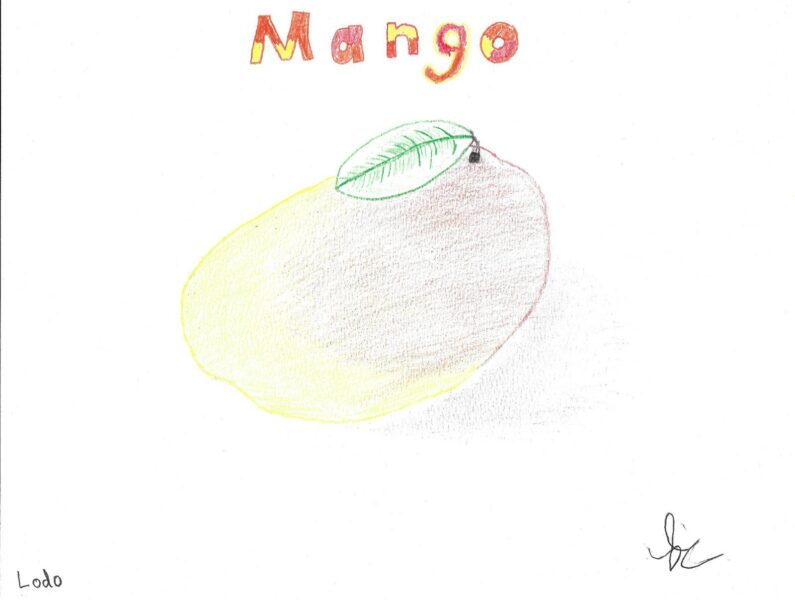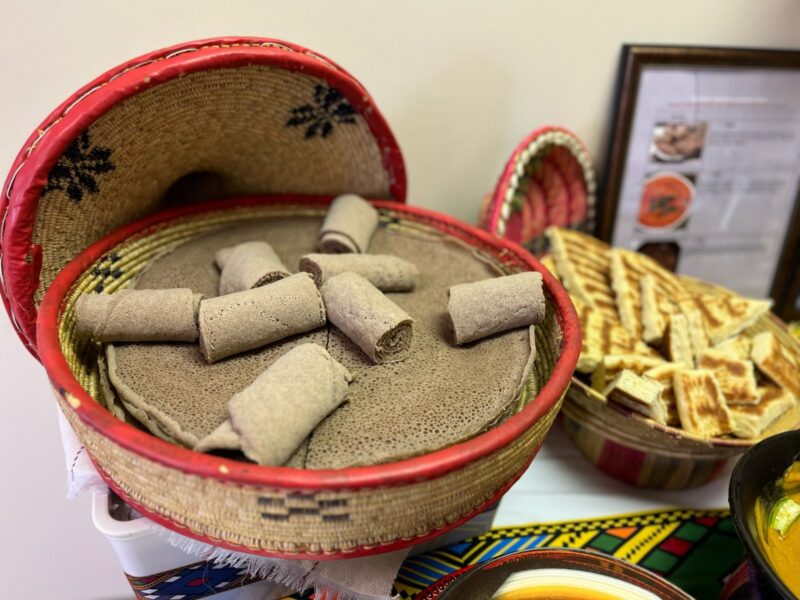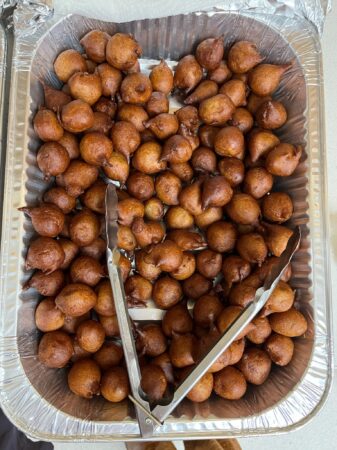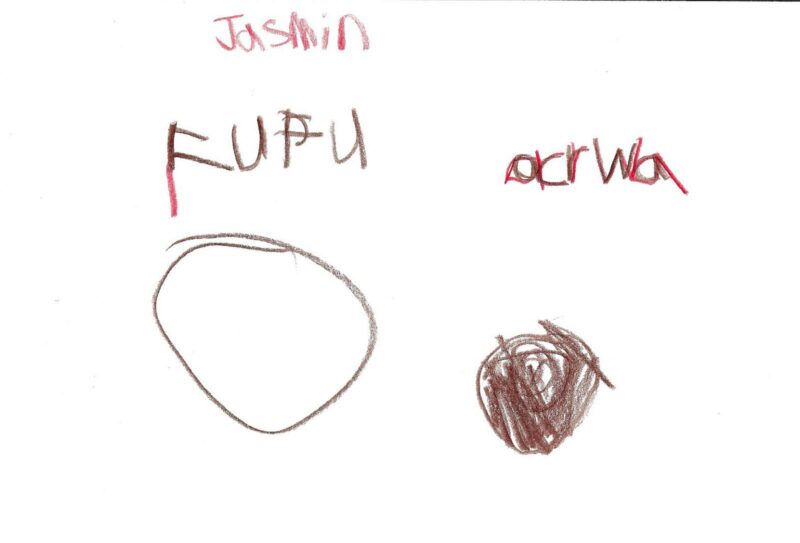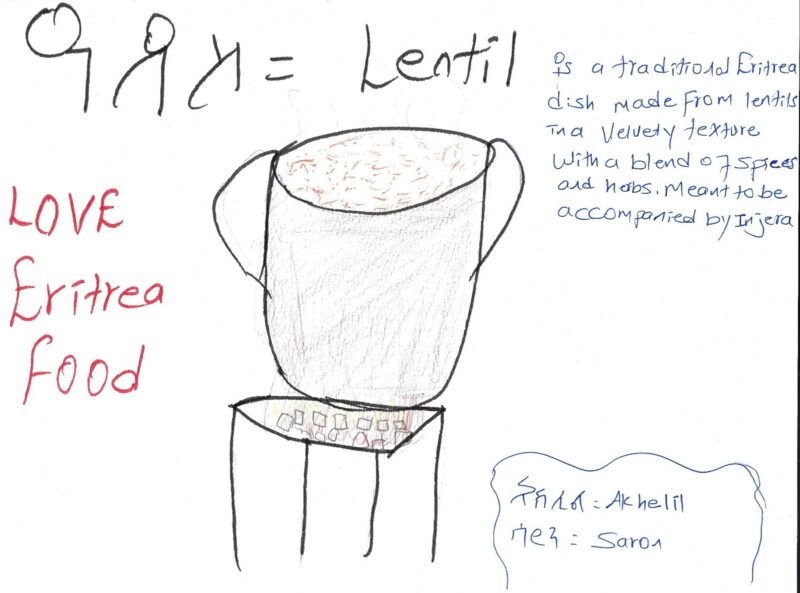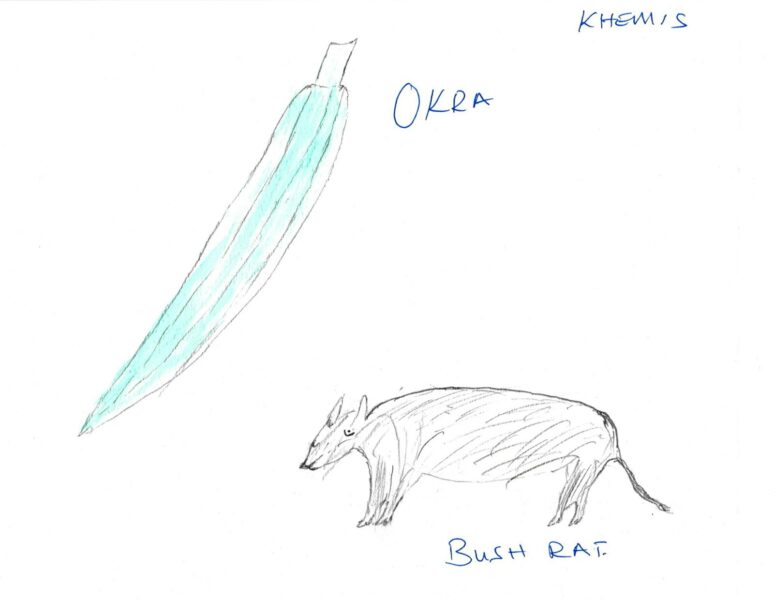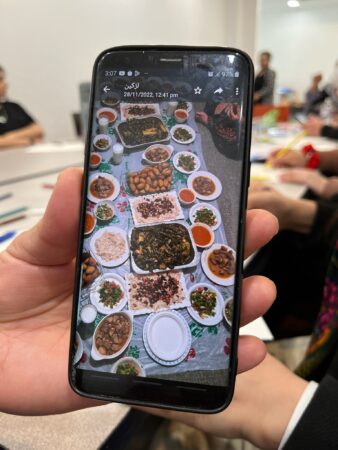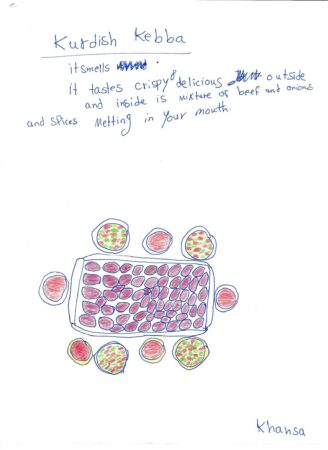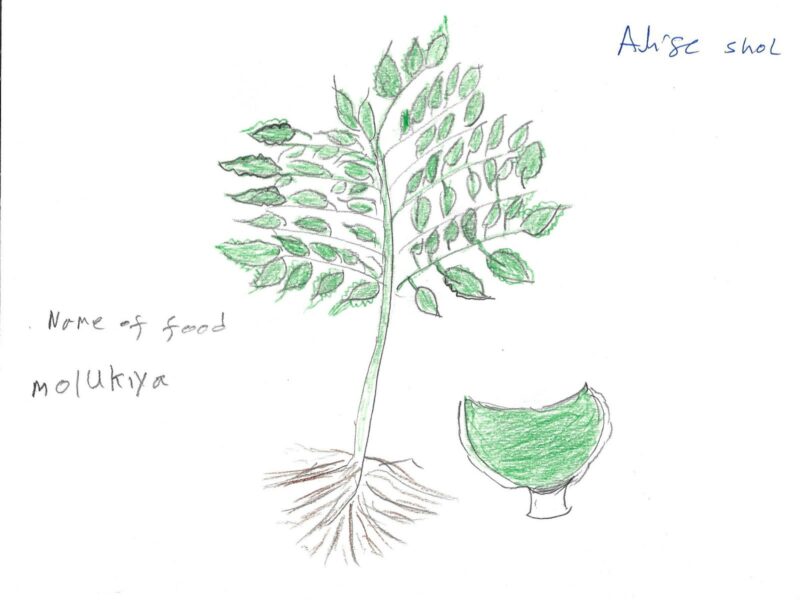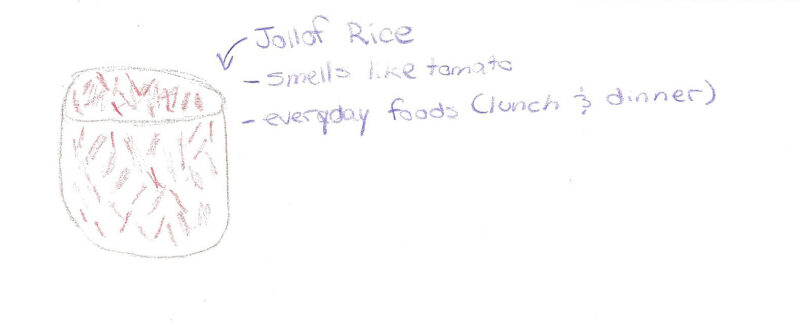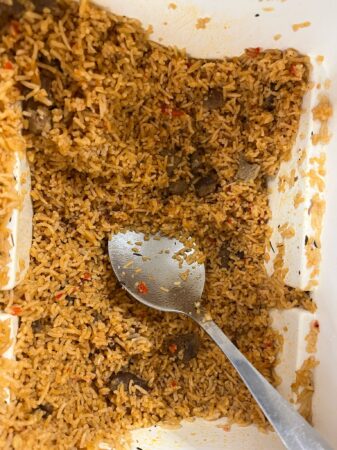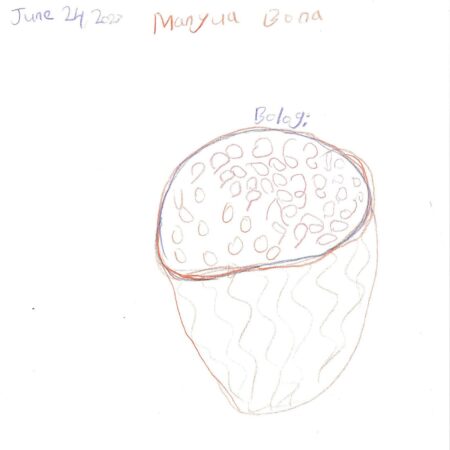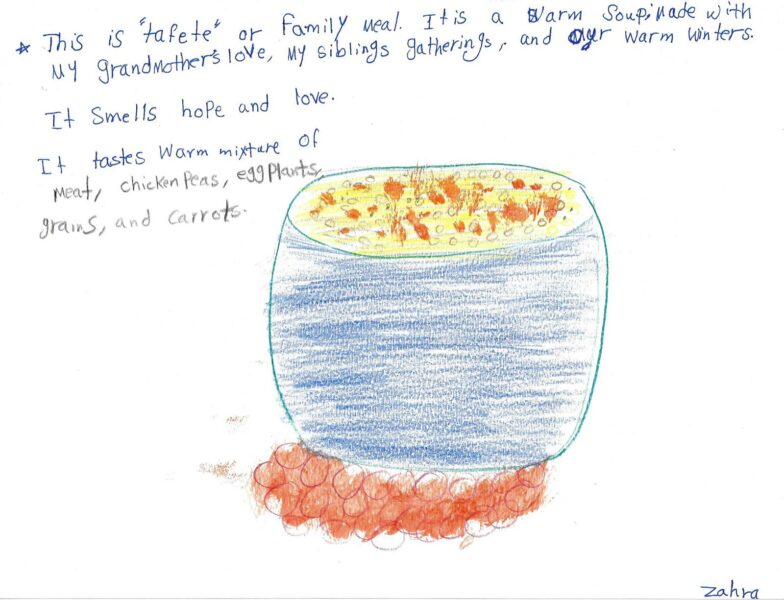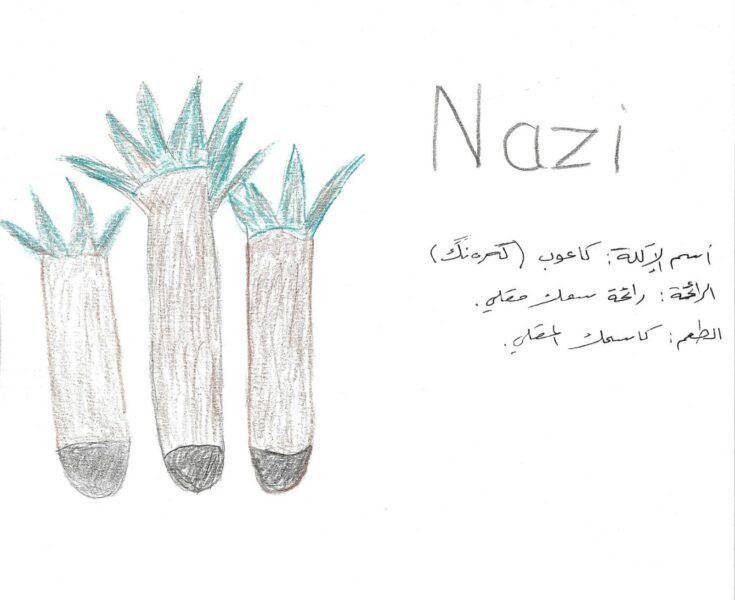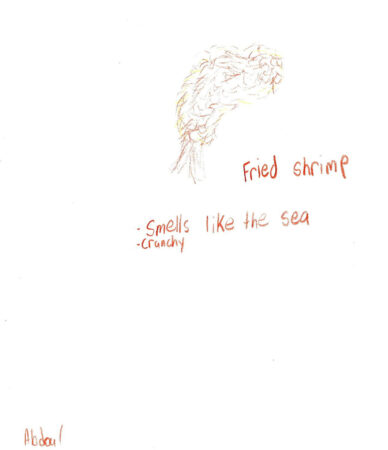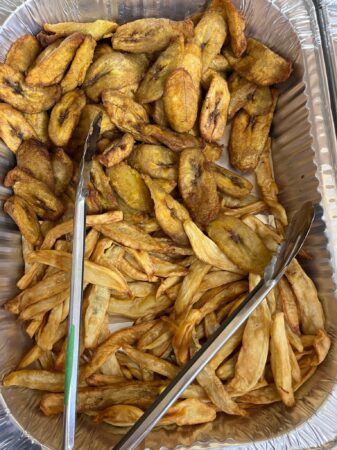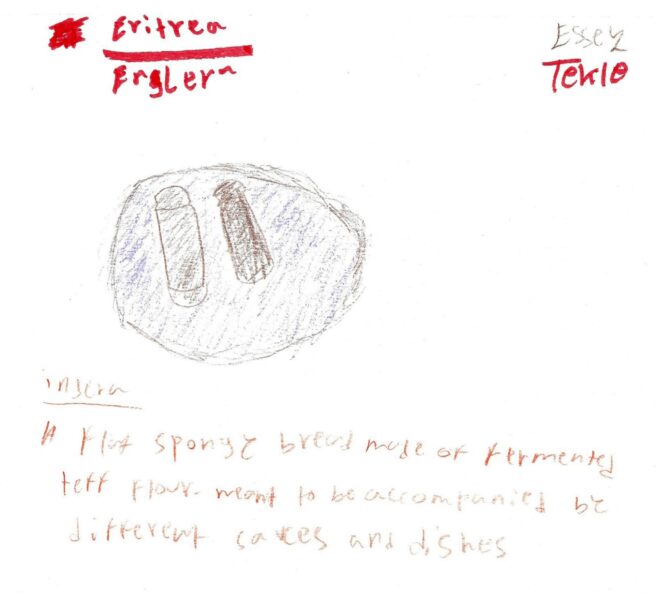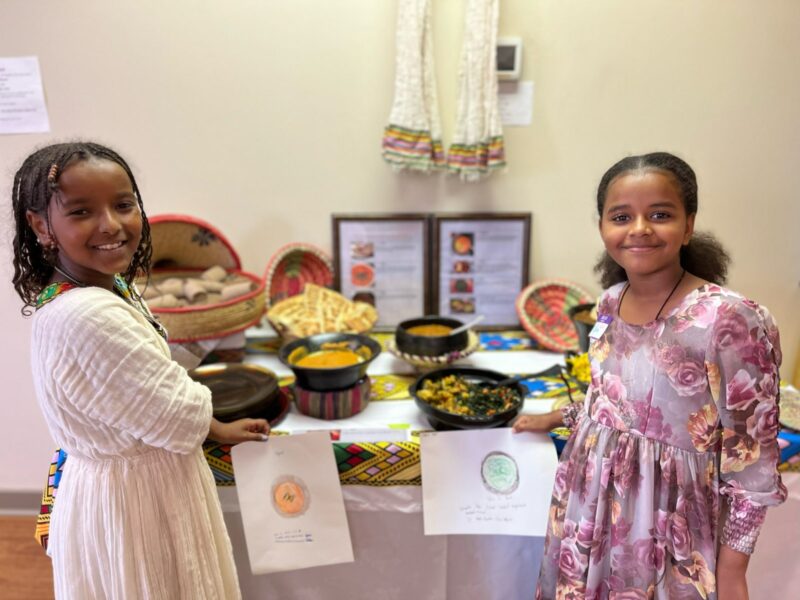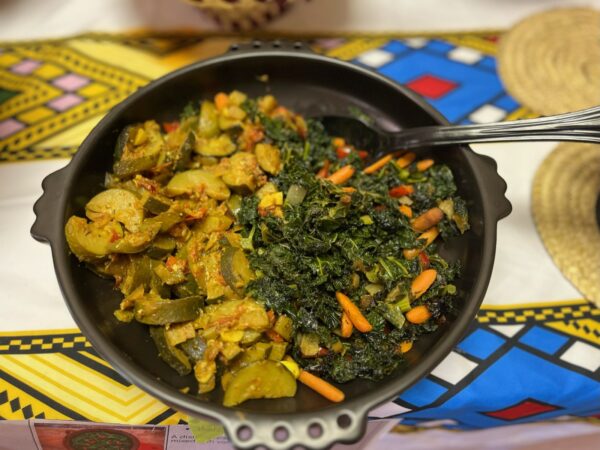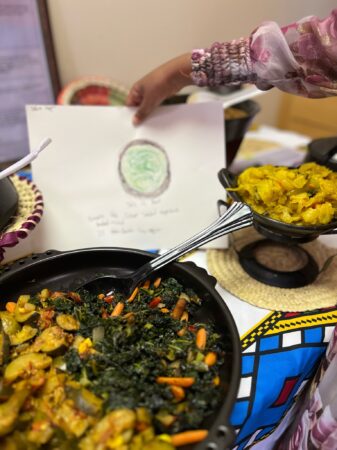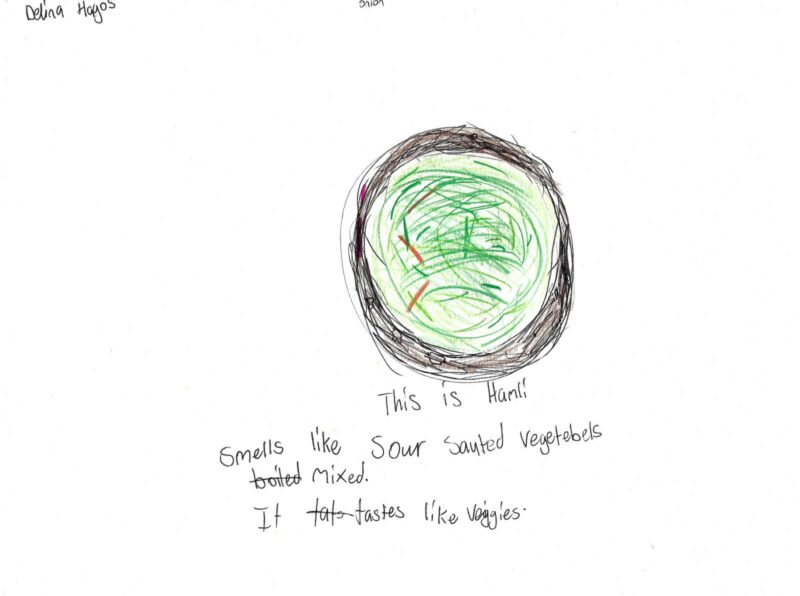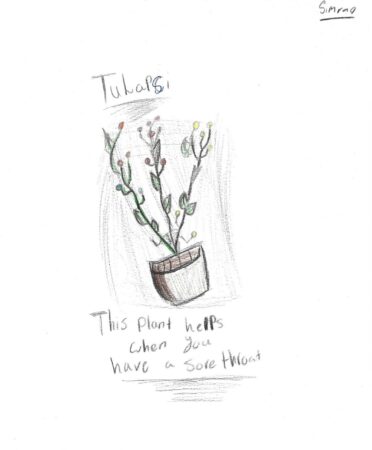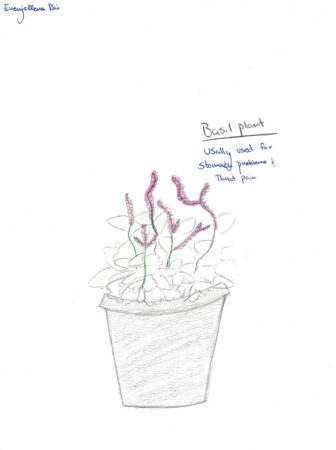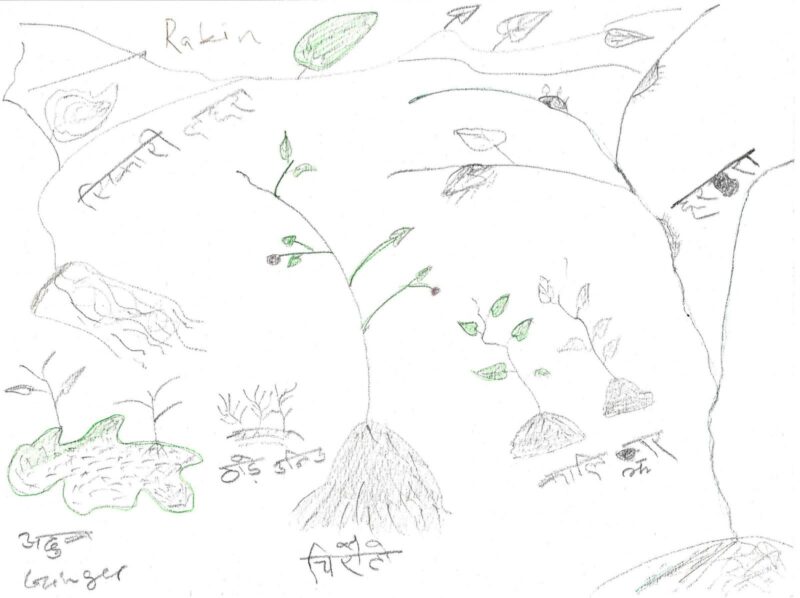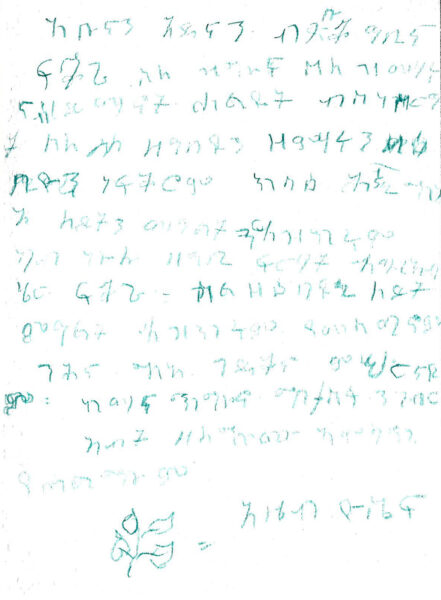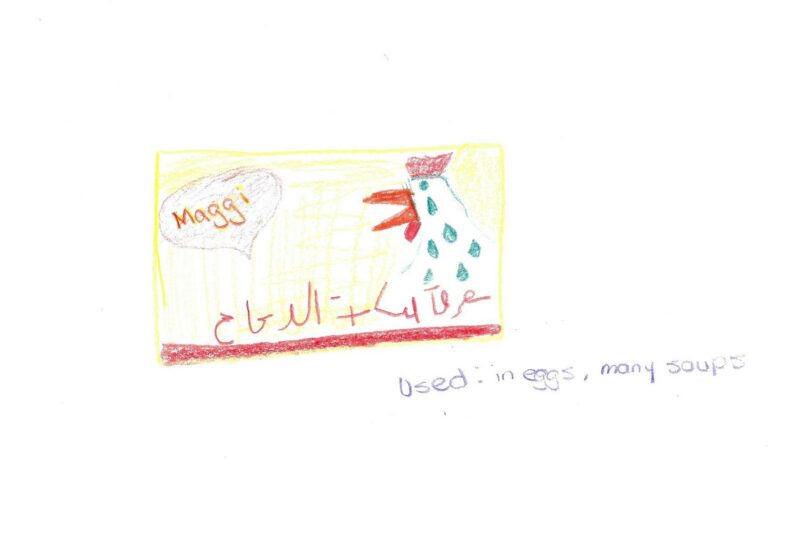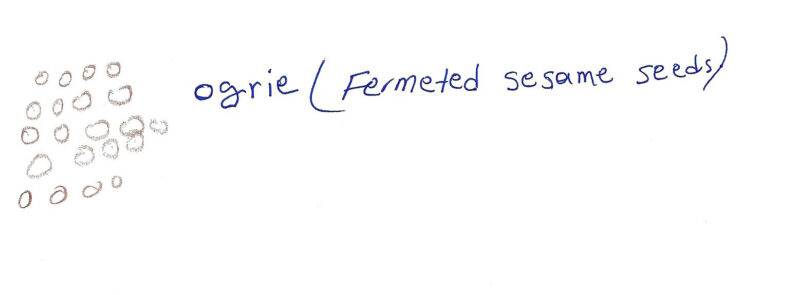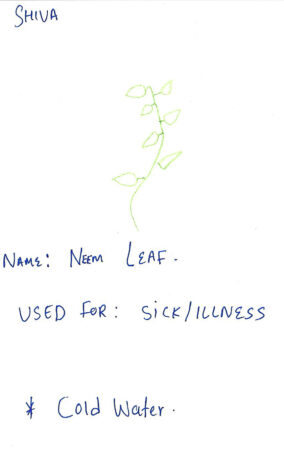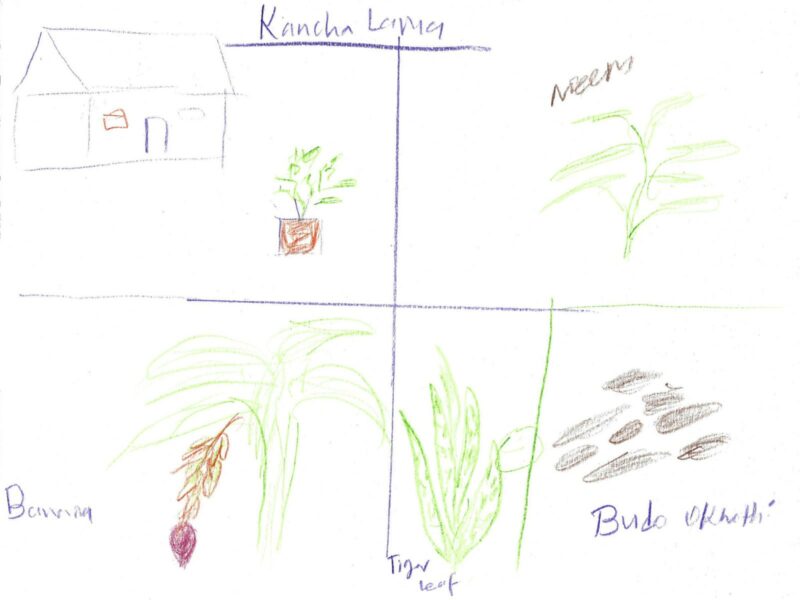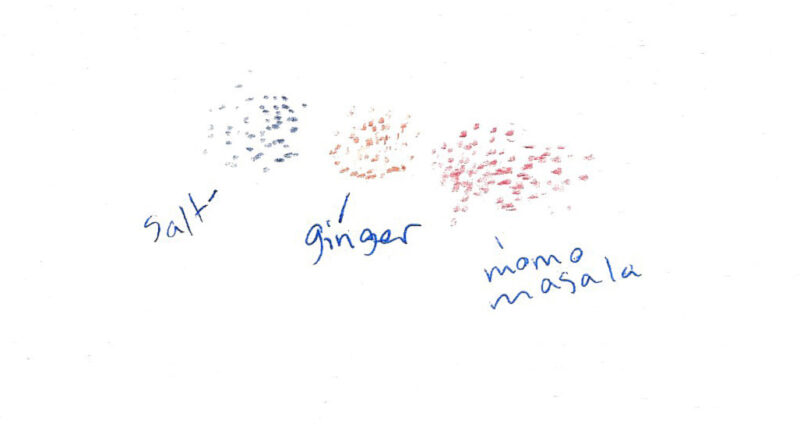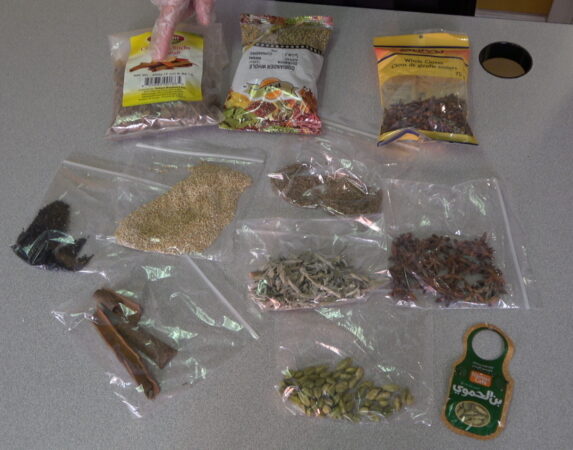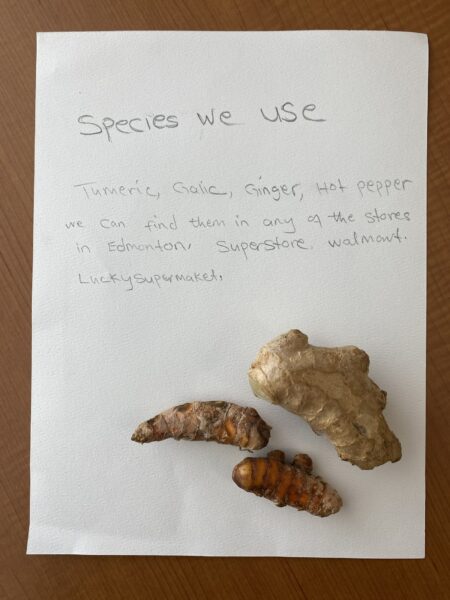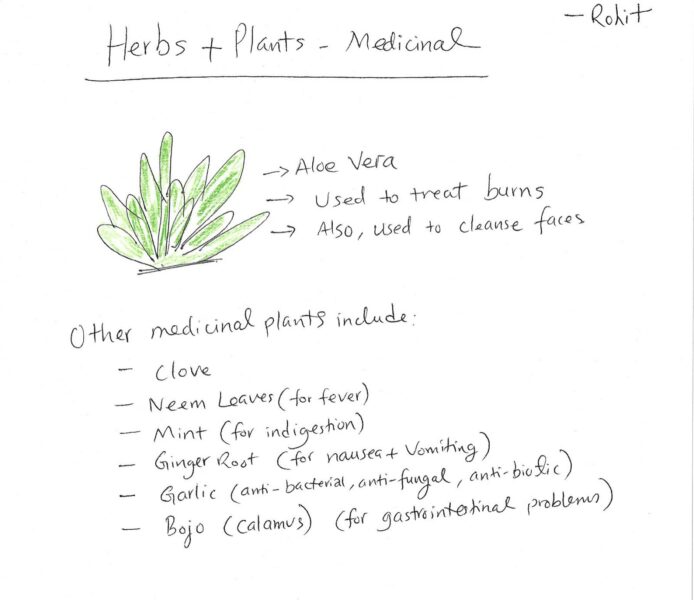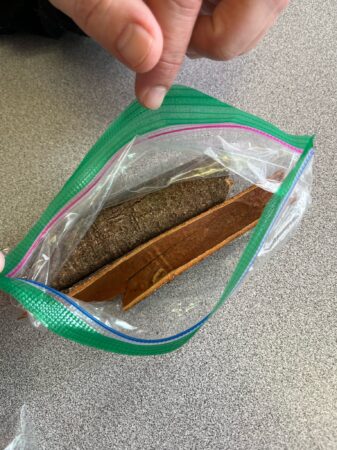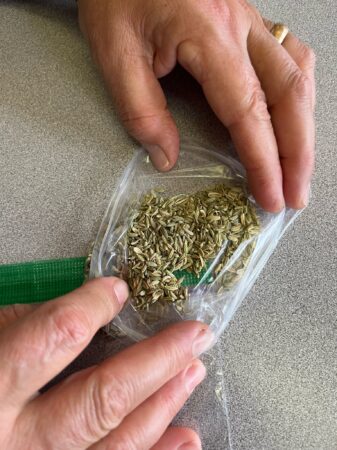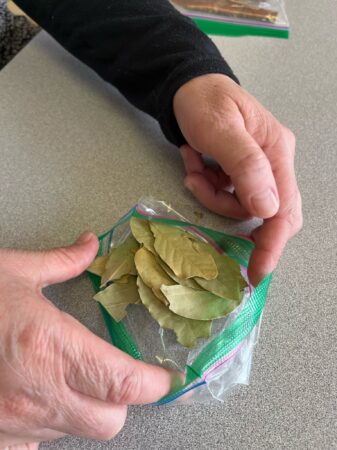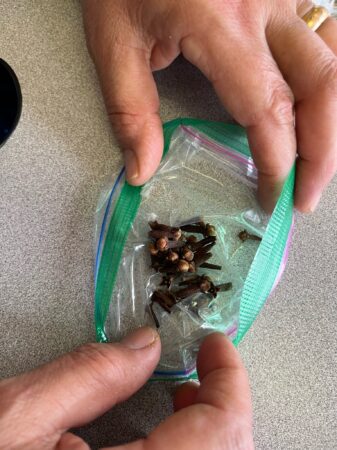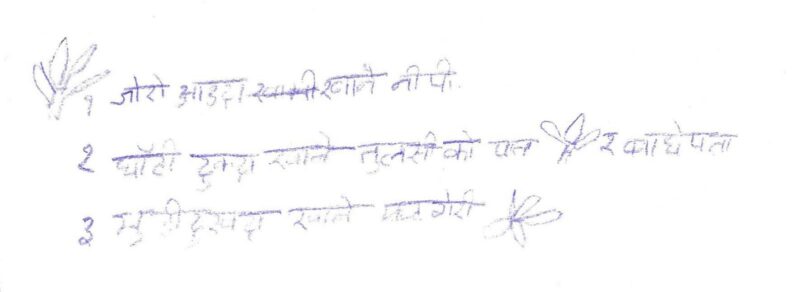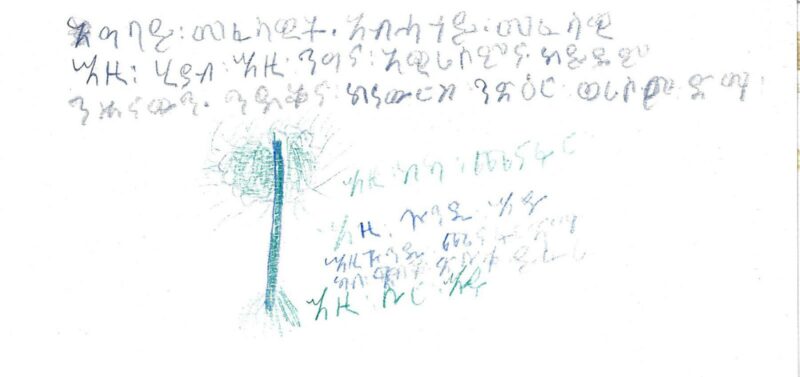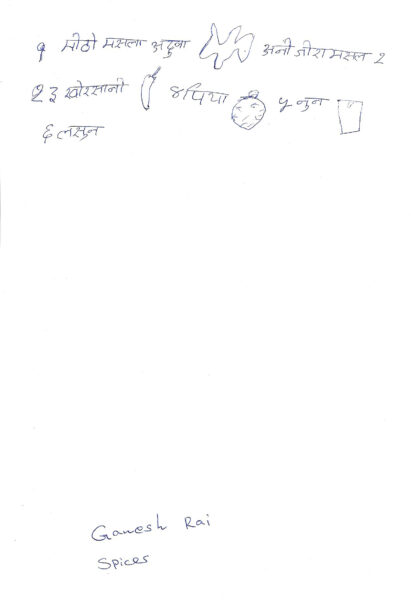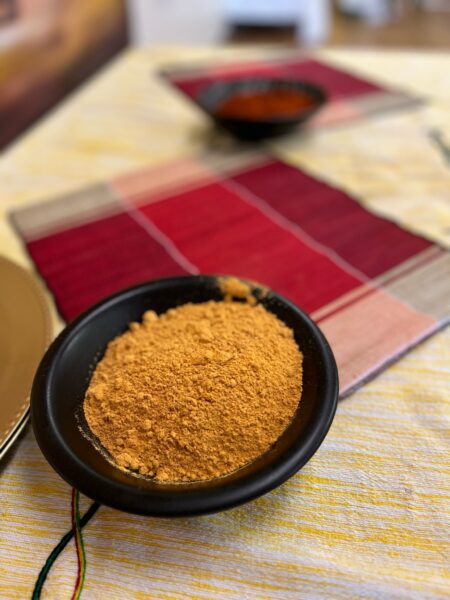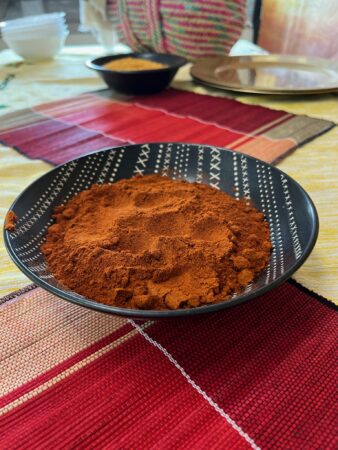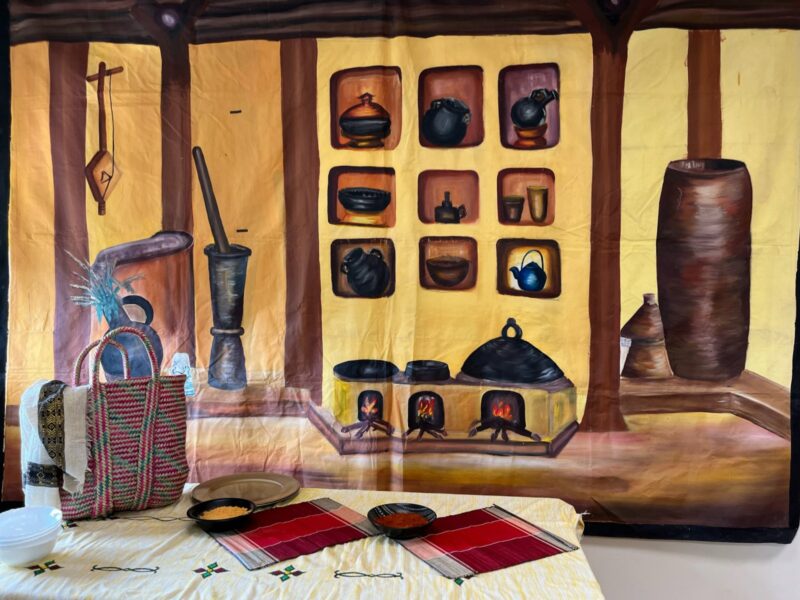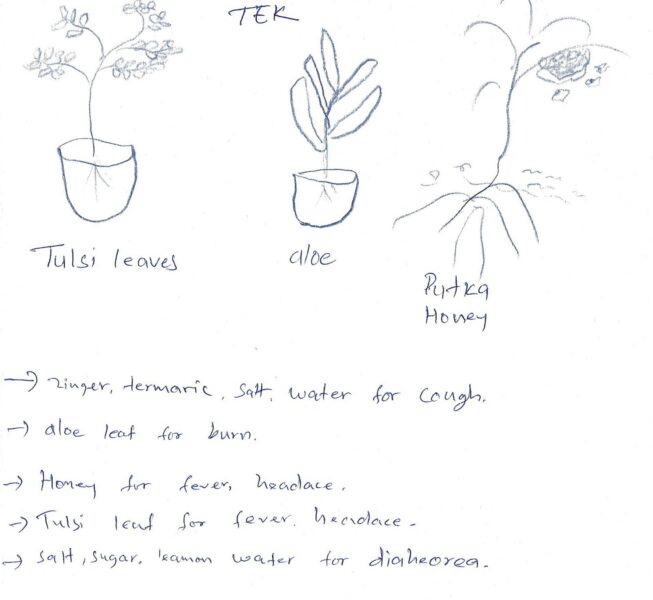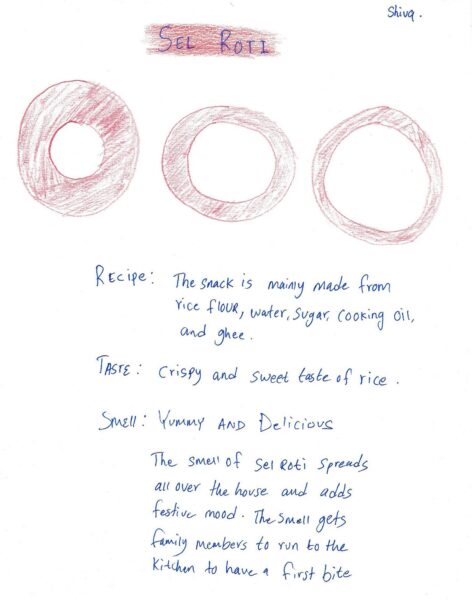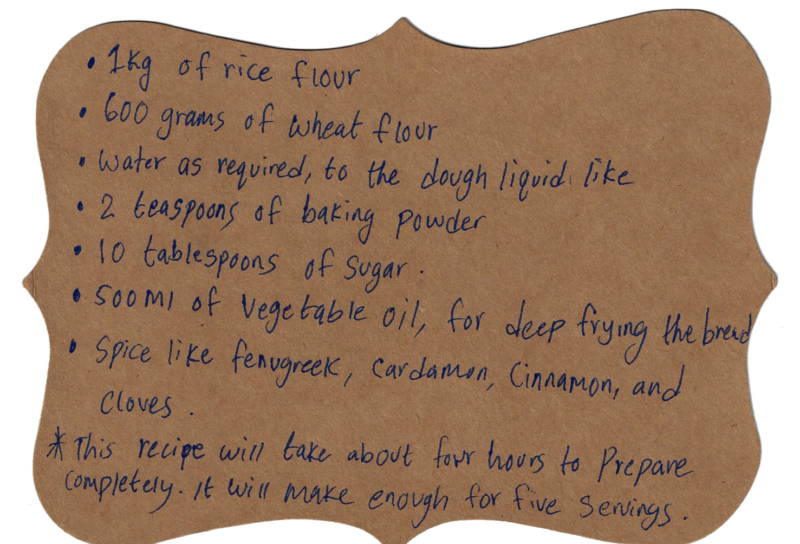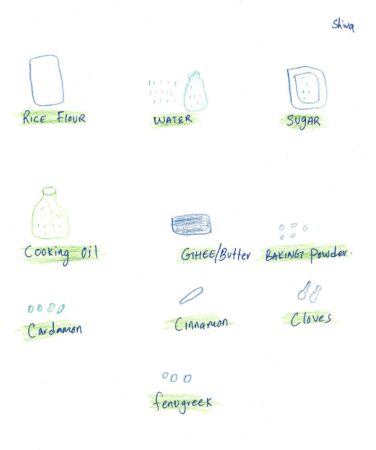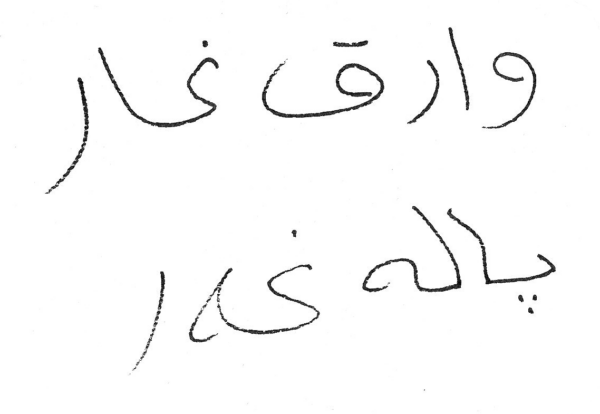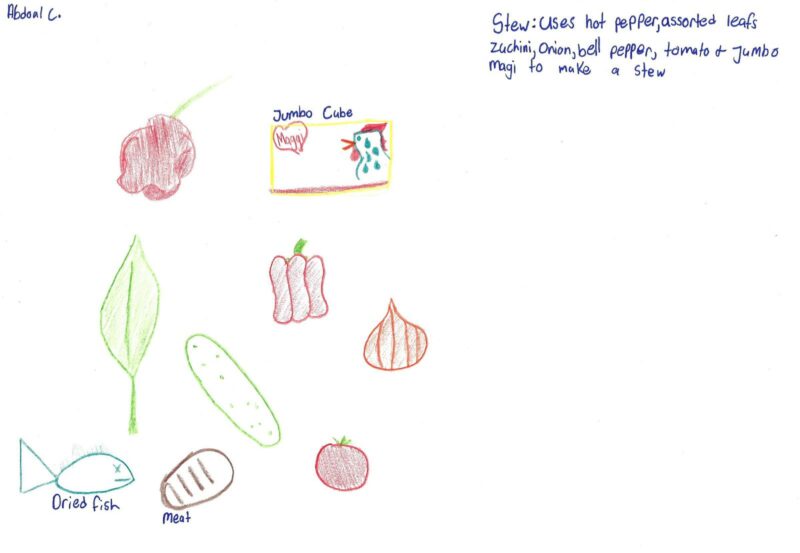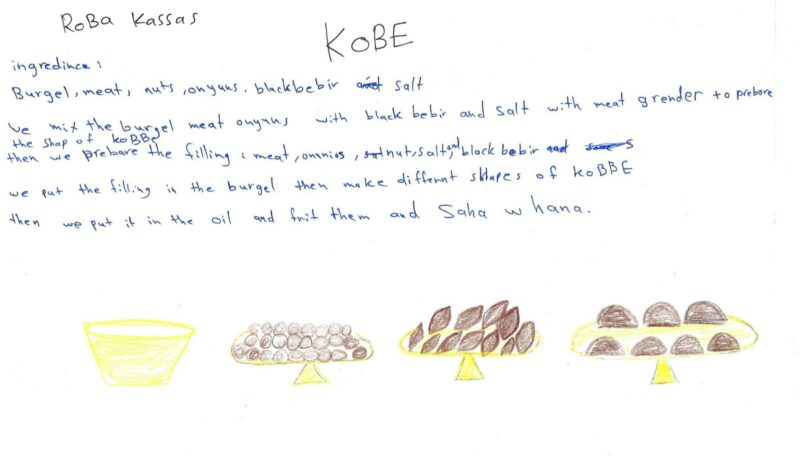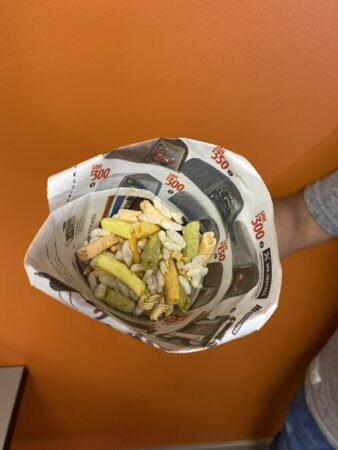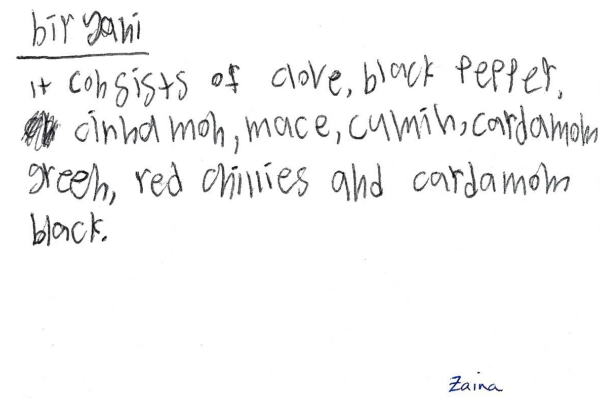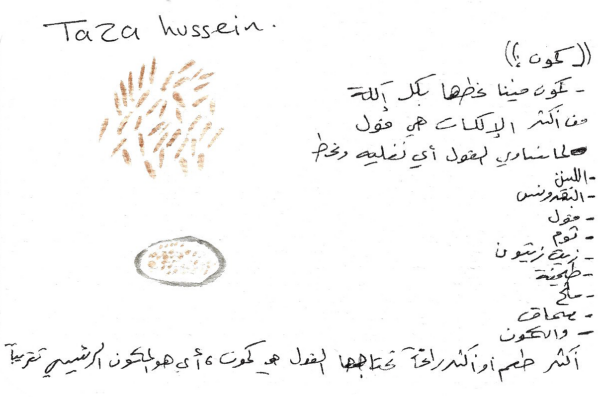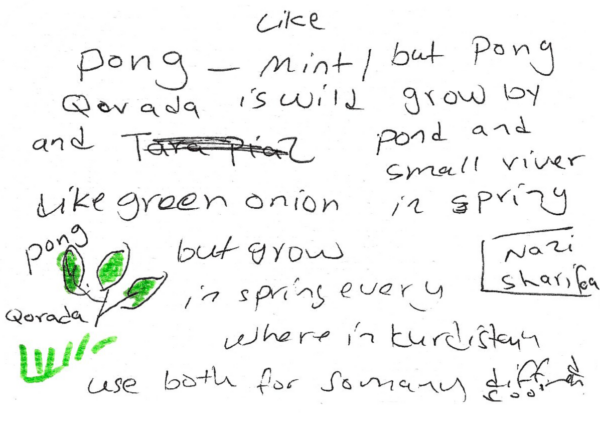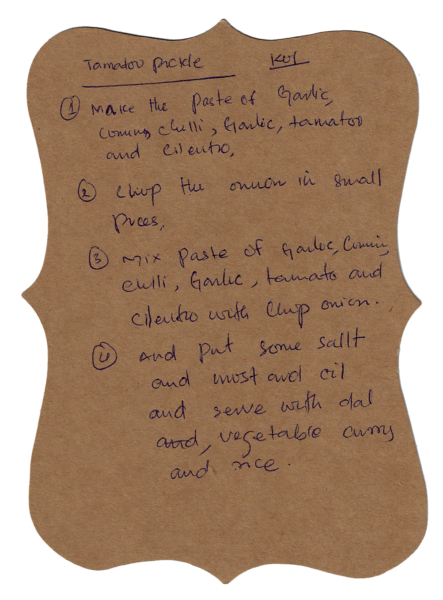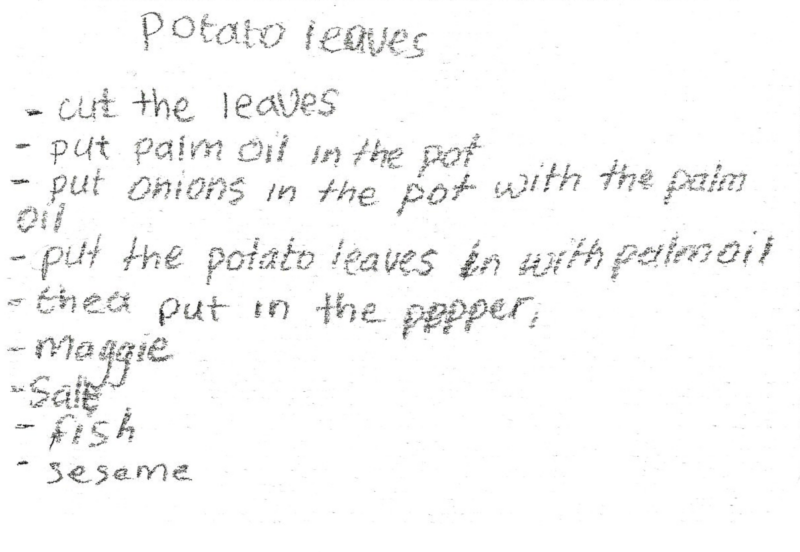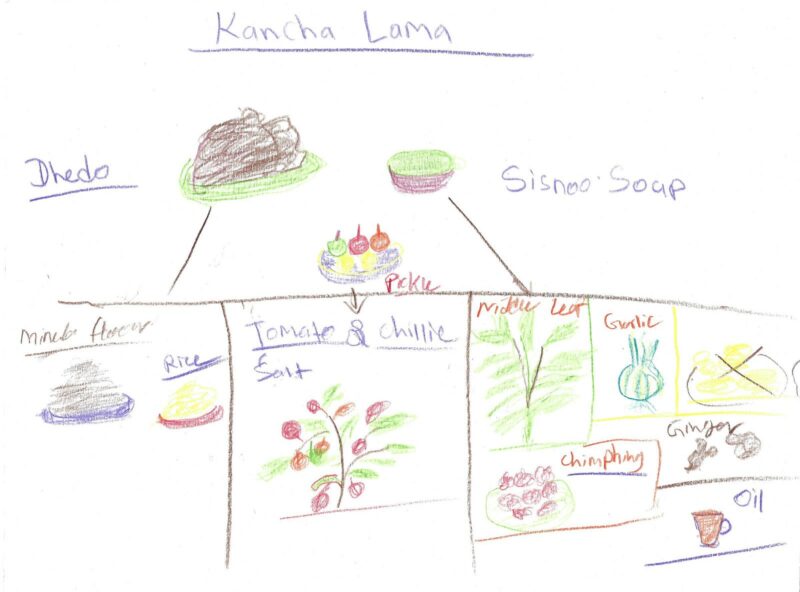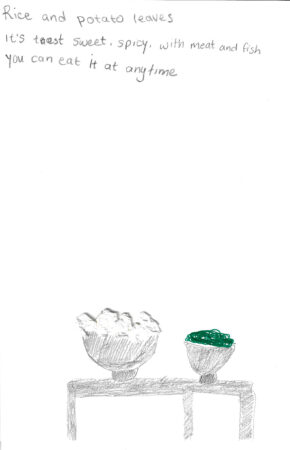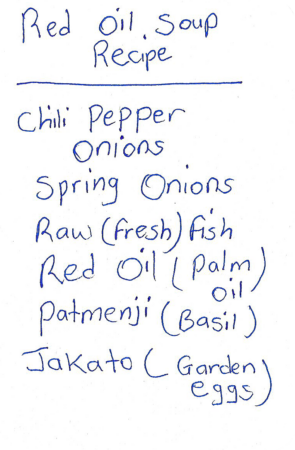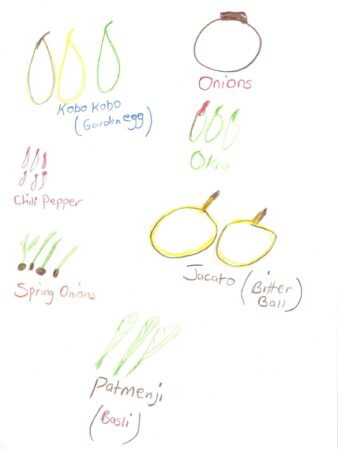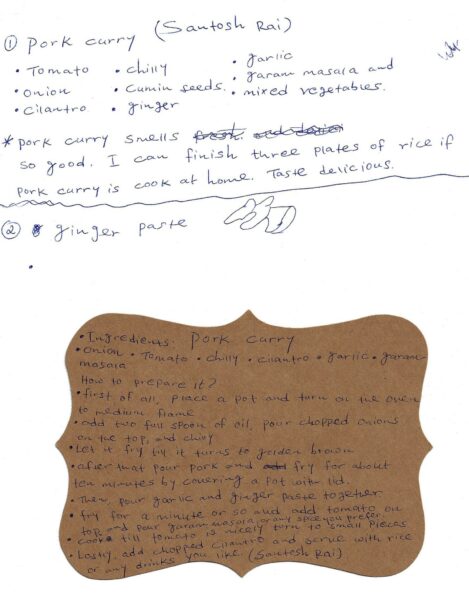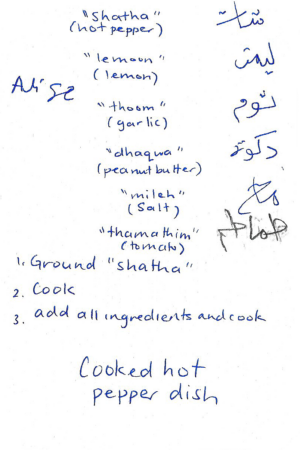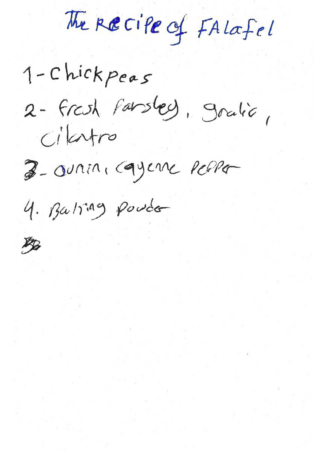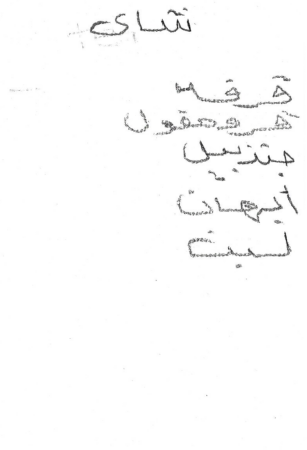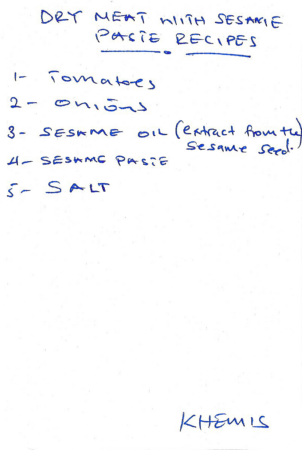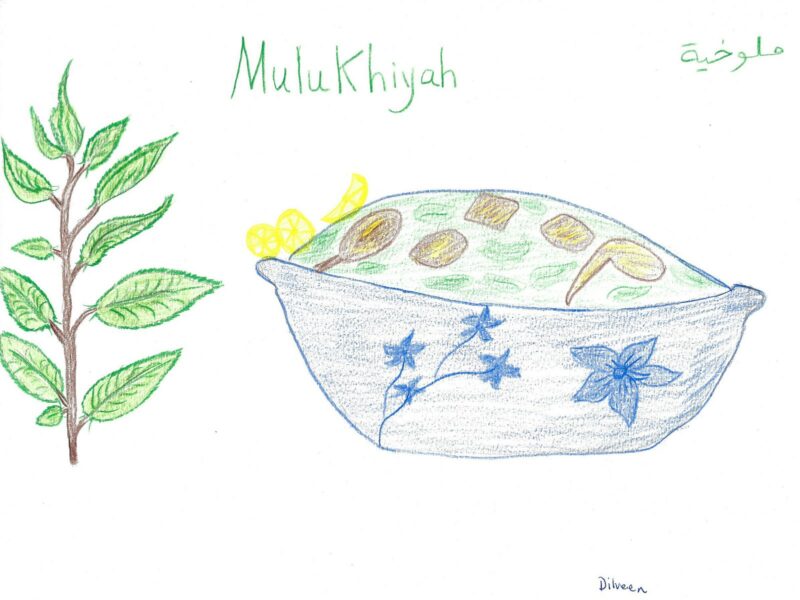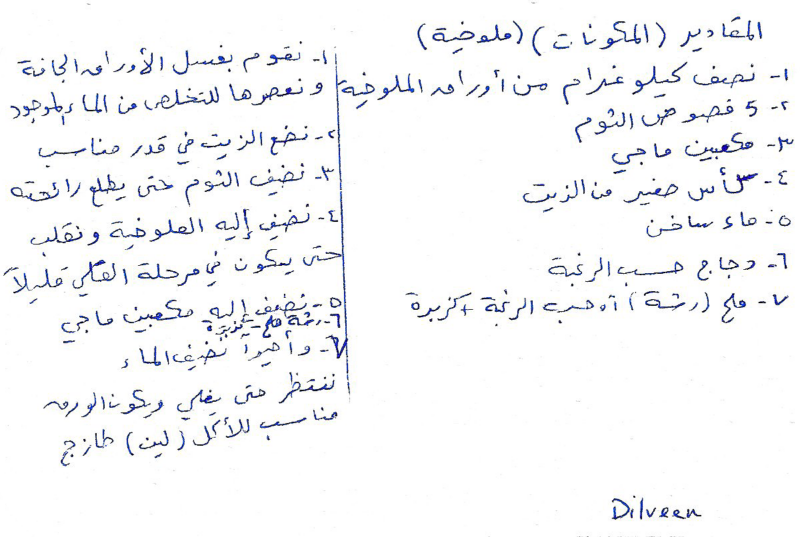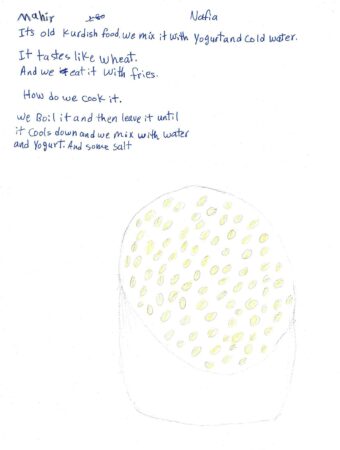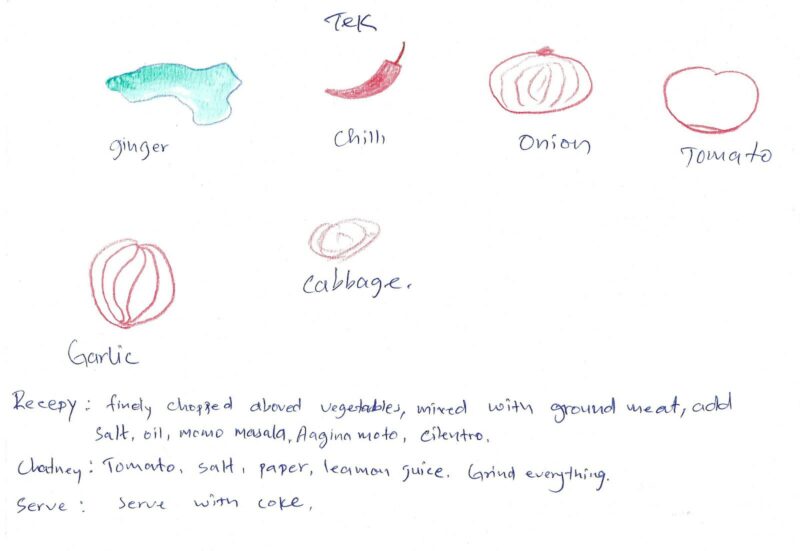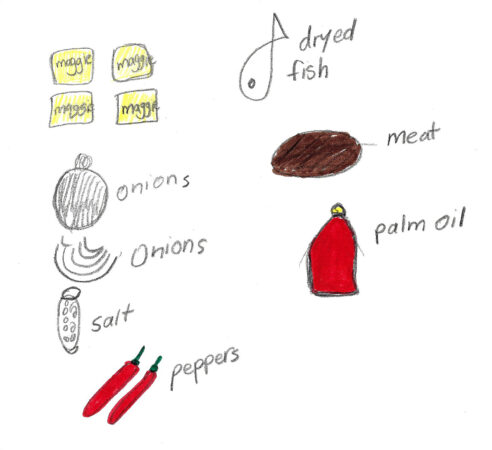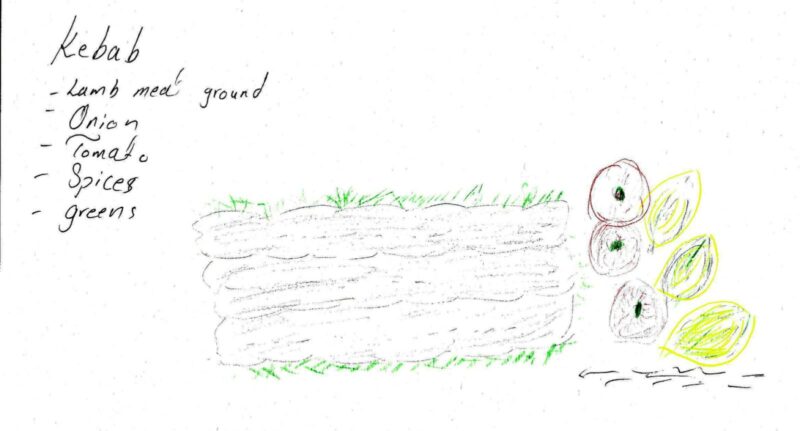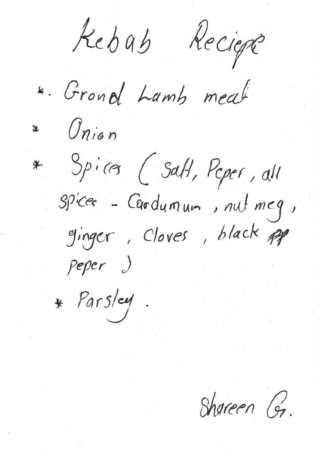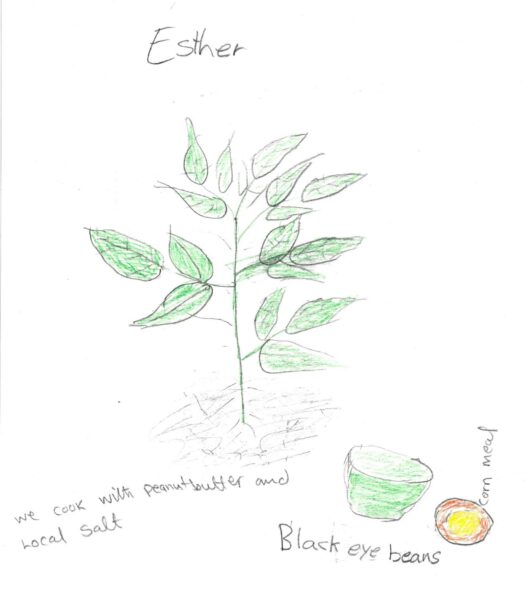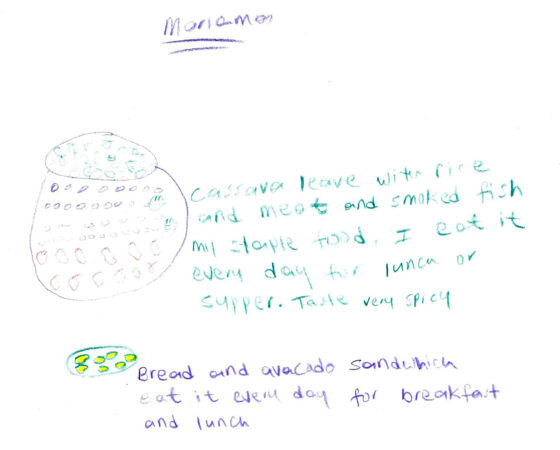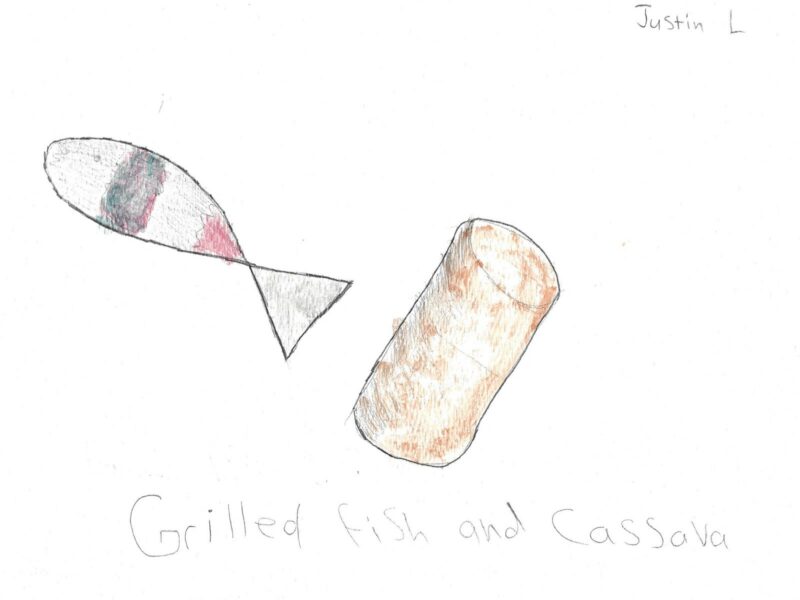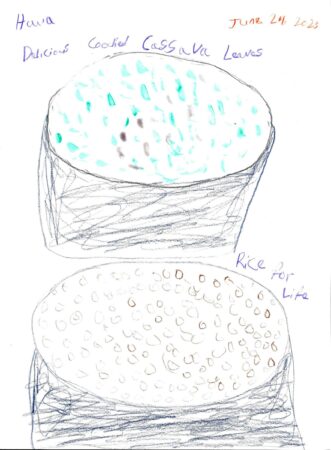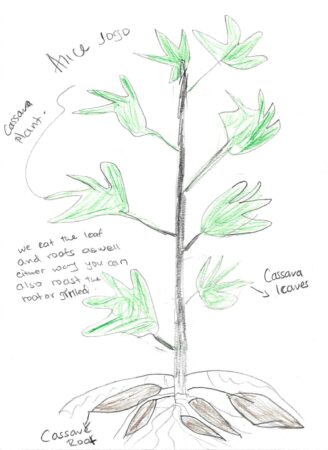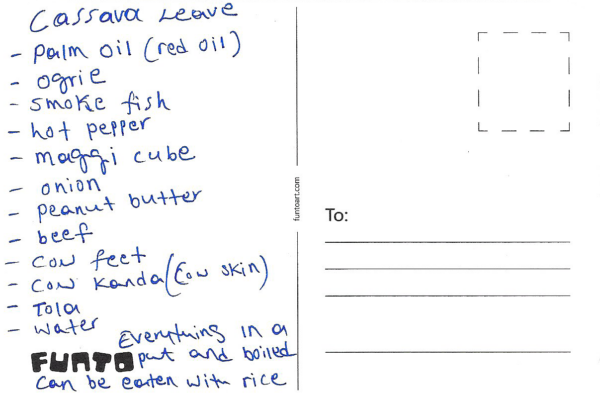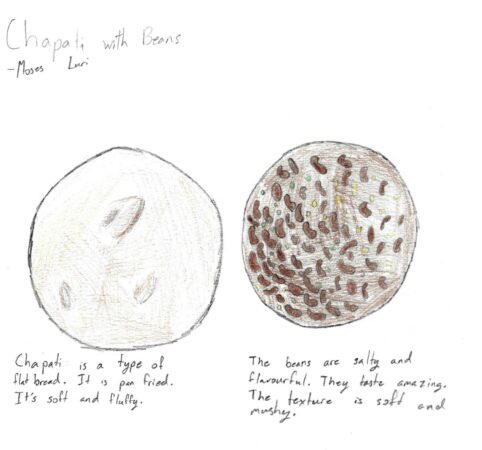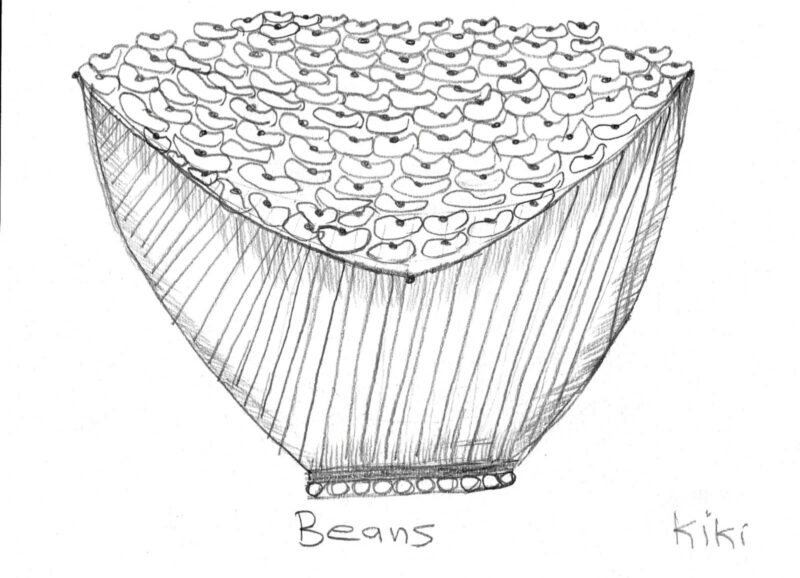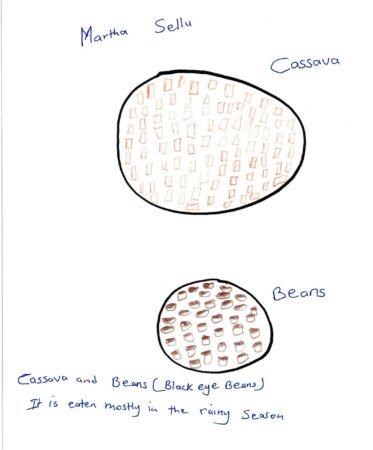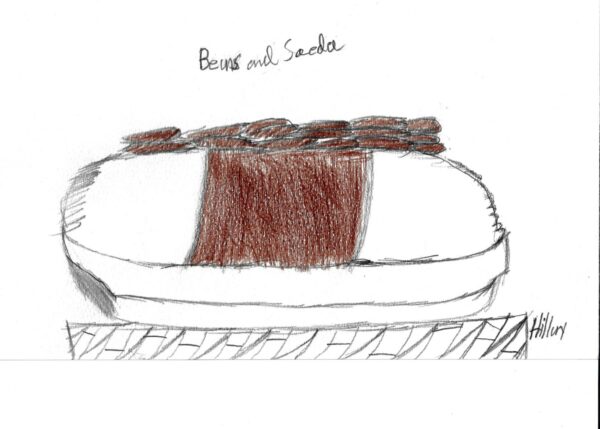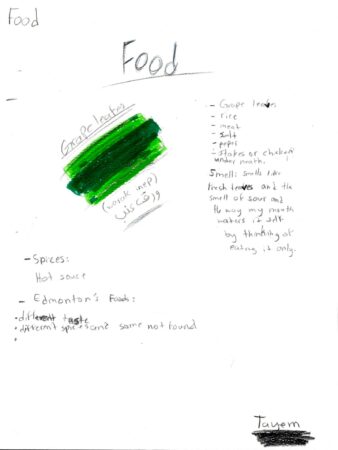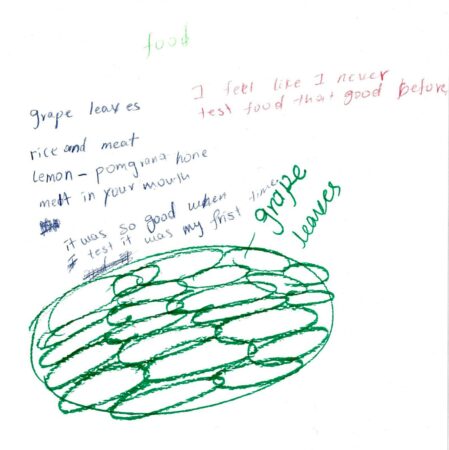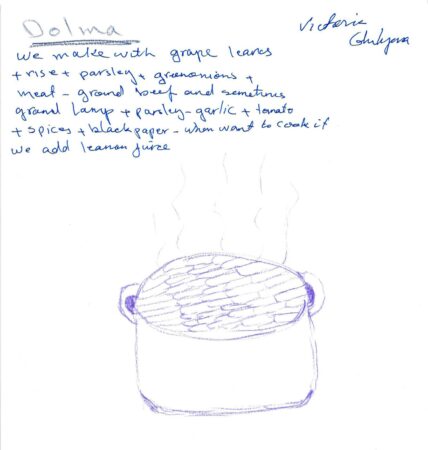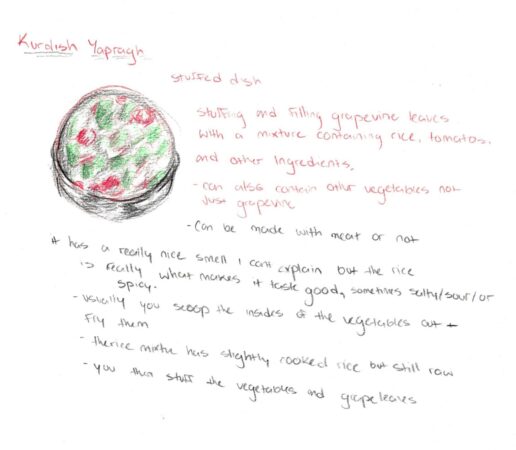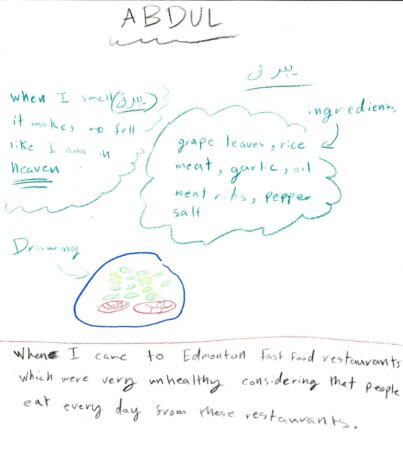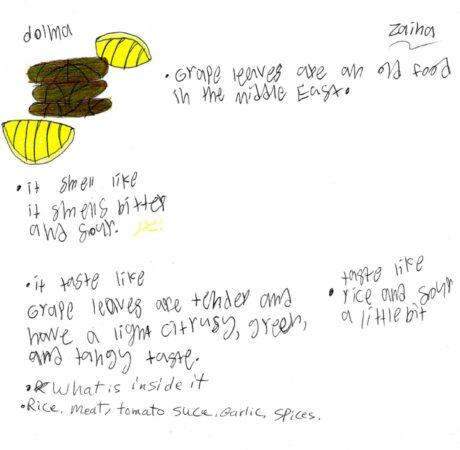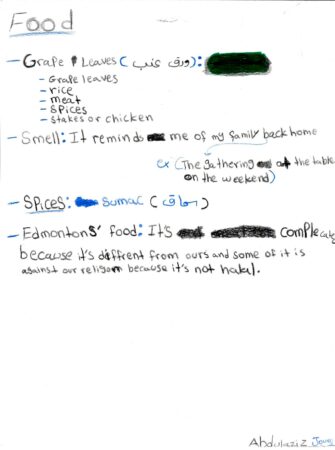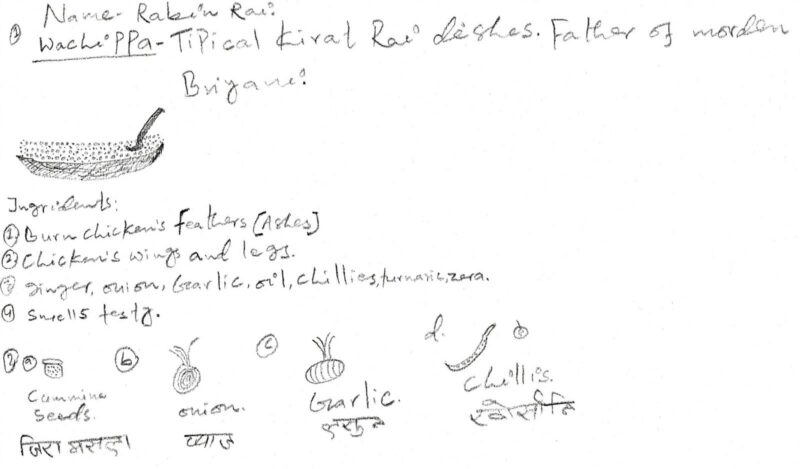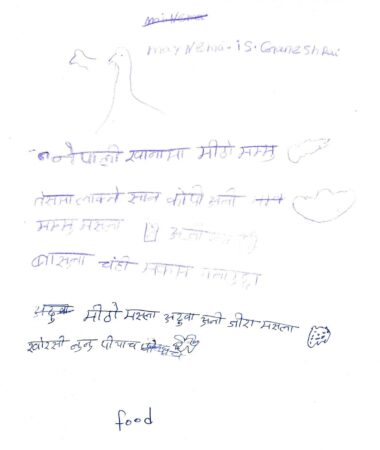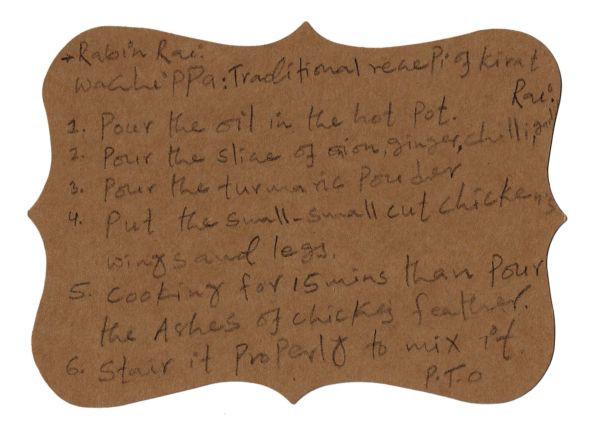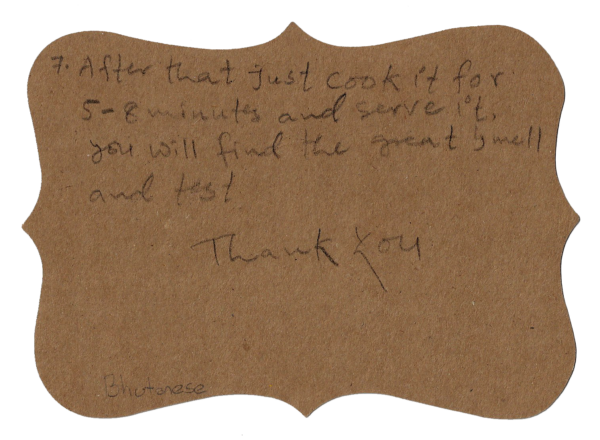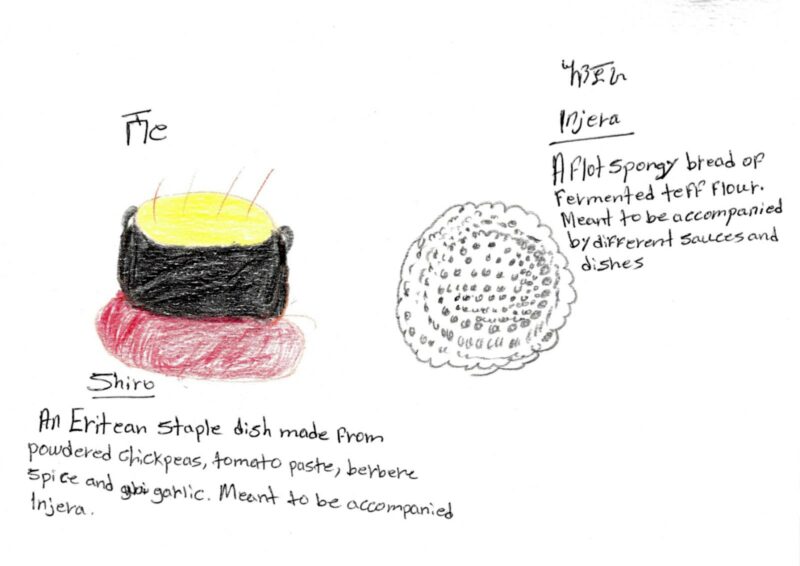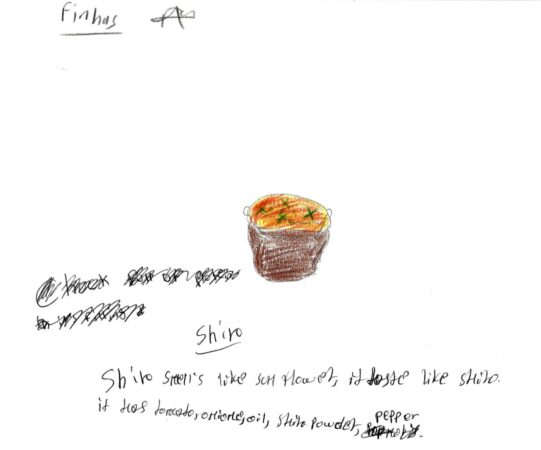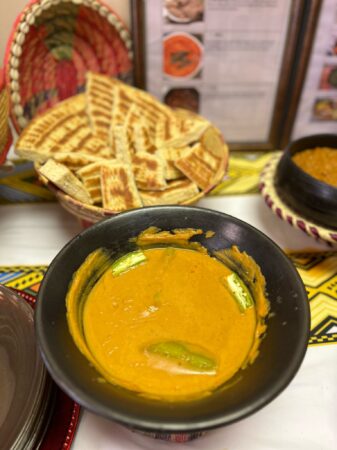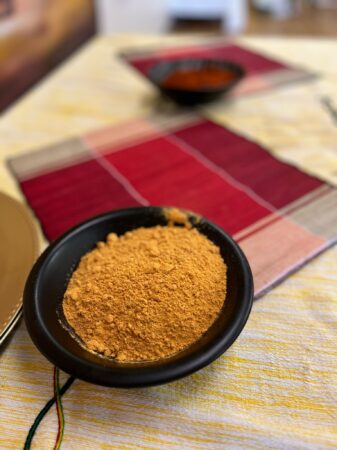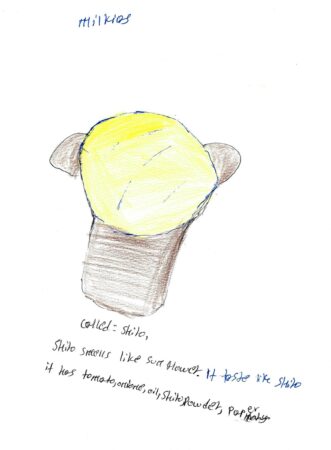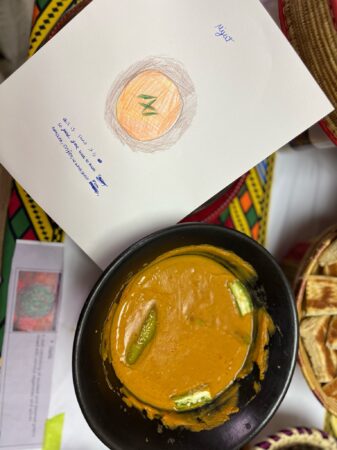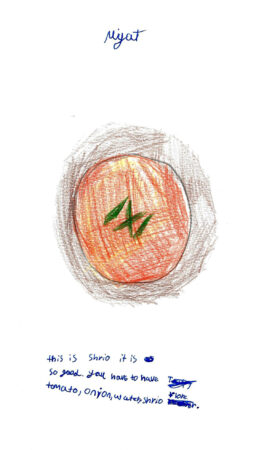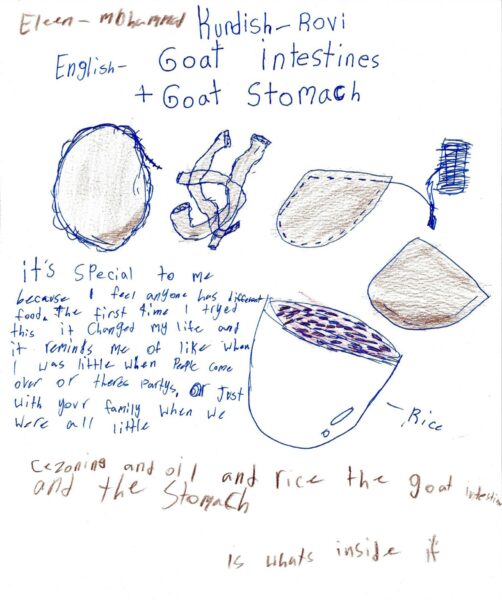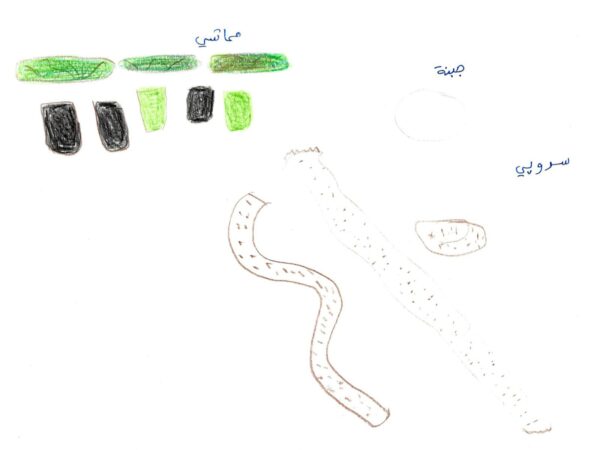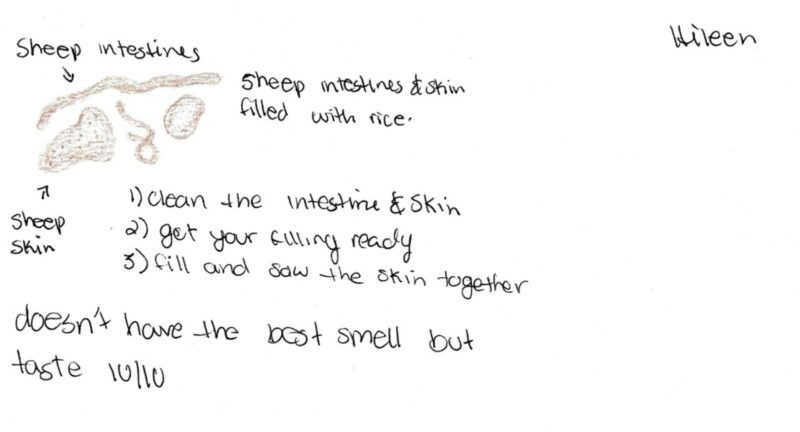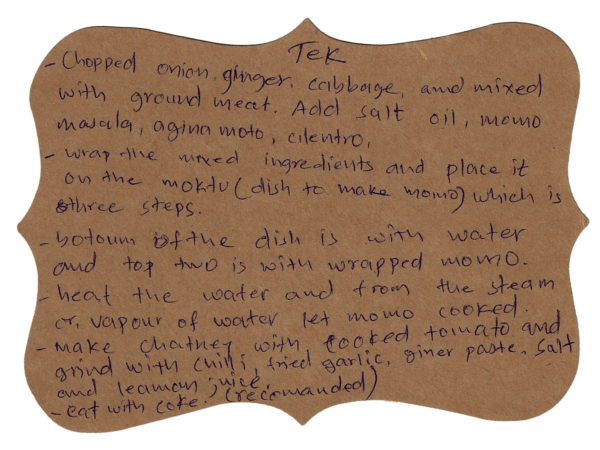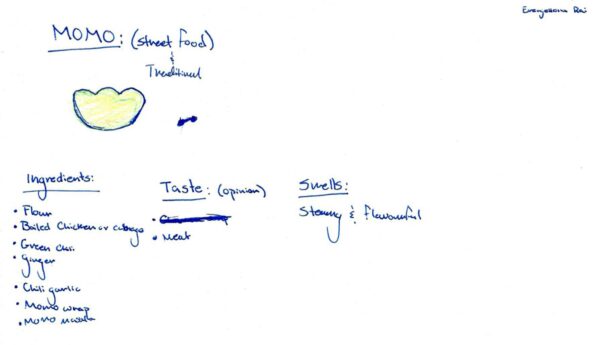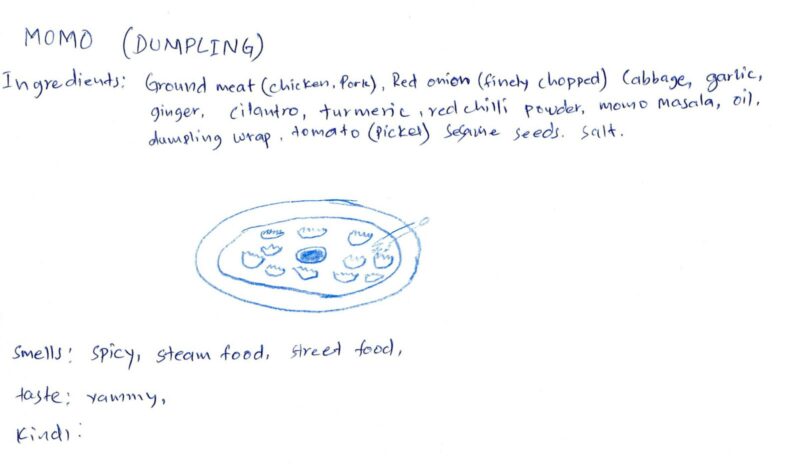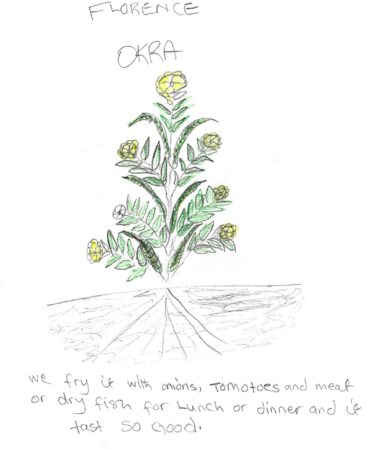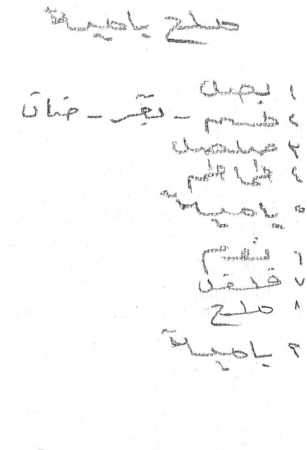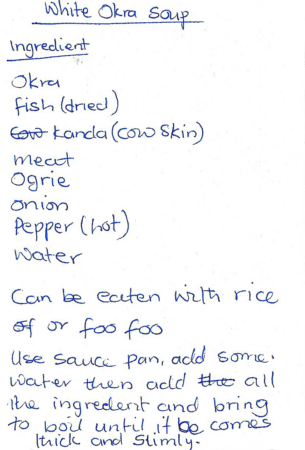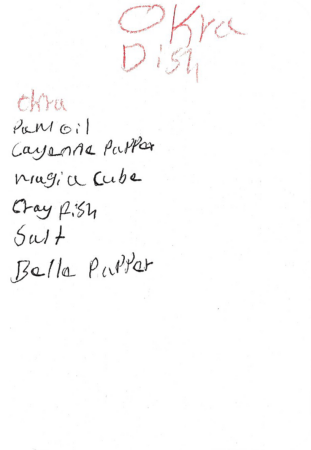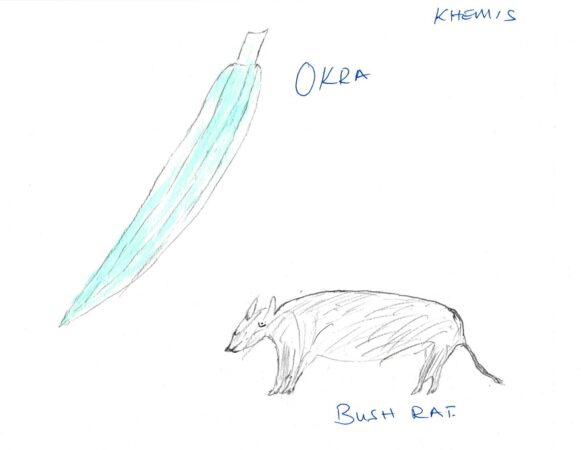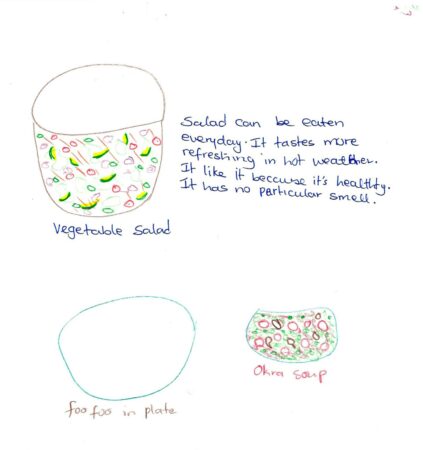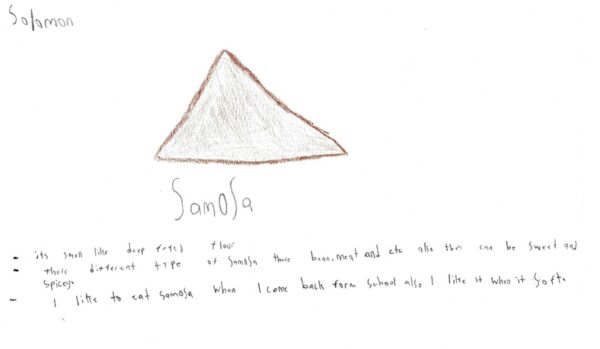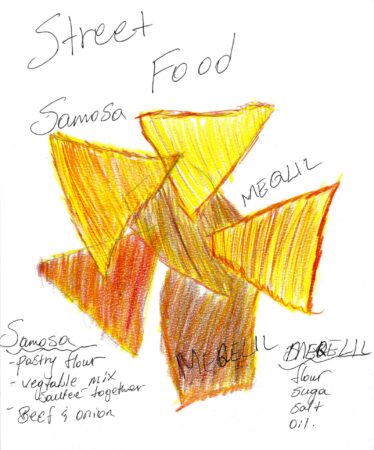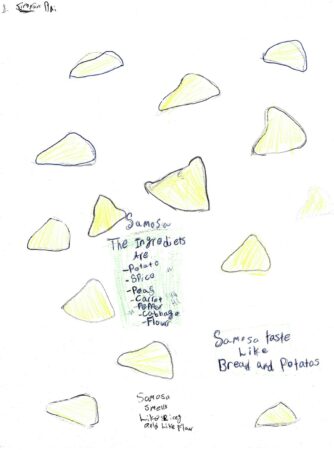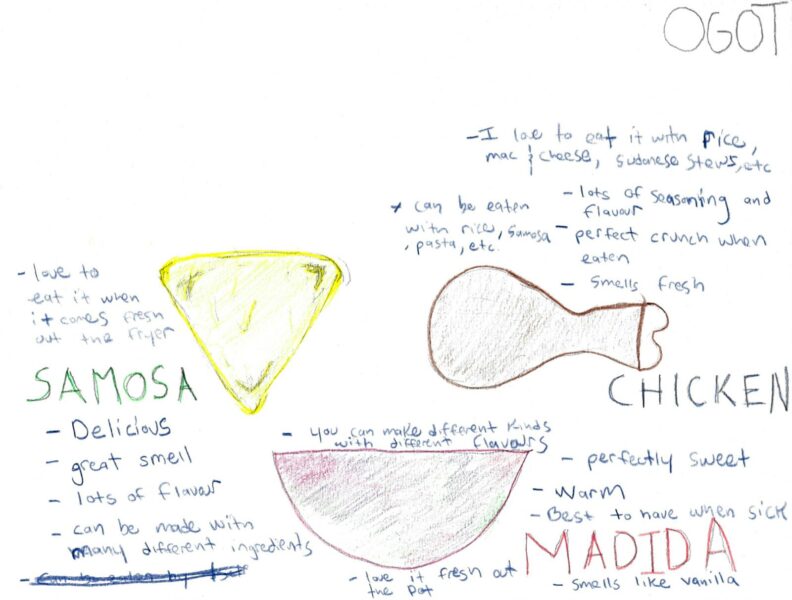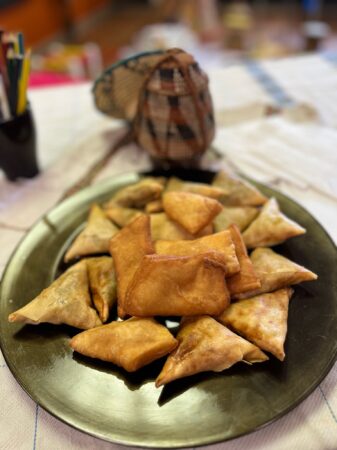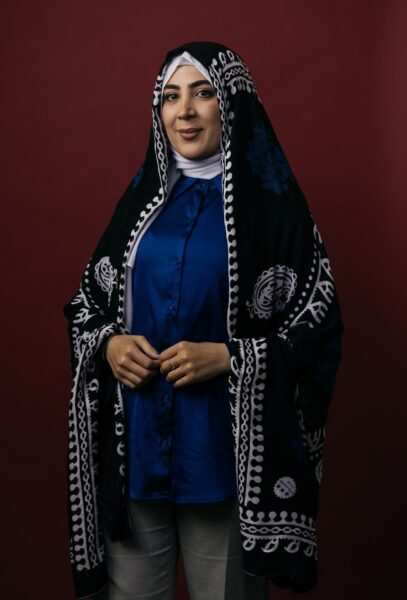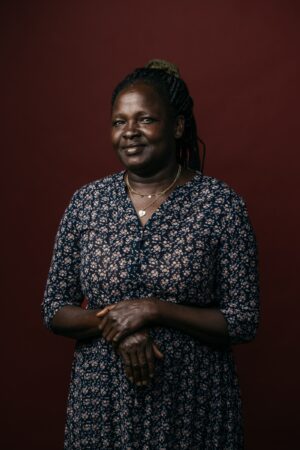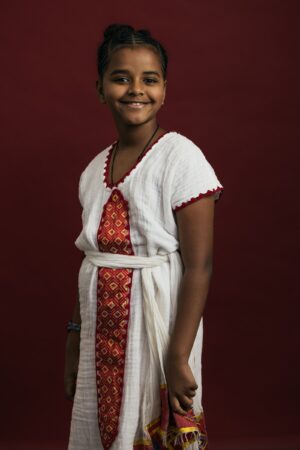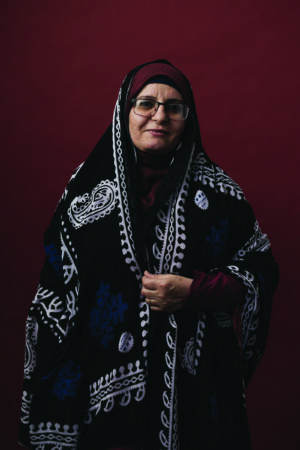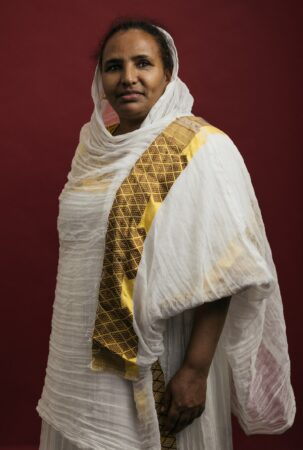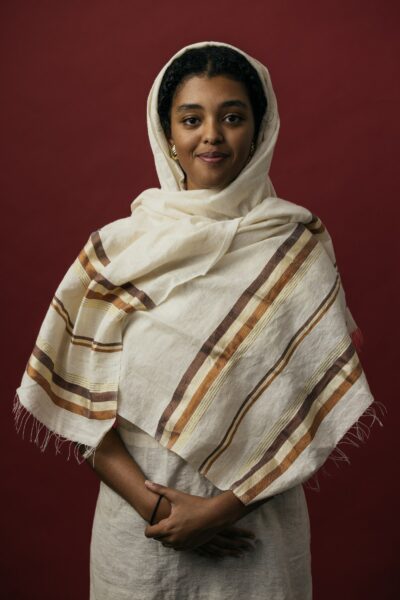Food
Nourriture
الطعام
Akil
Chop
خواردن
खाना
መግቢ
Nourishing our souls, our bodies, our relationships.
Aromas, textures, tastes, delicacies, smiles, comfort. Food is the magic that has brought people together from time immemorial. From feasts at ceremonies, celebrations, funerals, and life’s thresholds, to recipes passed down from generation to generation. From medicine and healing to satiation and cozy moments. Food is the lifeblood that keeps us pulsating. Food is life; what we eat is who we are.
Nourrir notre âme, notre corps, nos relations
Arômes, textures, goûts, délices, sourires, confort. La nourriture, c’est une magie qui rassemble les gens depuis des temps immémoriaux. Depuis les festins dégustés à l’occasion de cérémonies, de célébrations, de funérailles et de toutes sortes de jalons de la vie jusqu’aux recettes transmises de génération en génération, en passant par les remèdes, la guérison, la satiété et les moments intimes, la nourriture, c’est l’élément vital qui fait vibrer l’être humain. La nourriture, c’est la vie. Ce que nous mangeons, c’est ce que nous sommes.
تغذي أرواحنا وأجسادنا وعلاقاتنا
الروائح، والقوام، والأذواق، والأطعمة الشهية، والابتسامات، والراحة. الطعام هو السحر الذي يجمع الناس منذ الأزل. من الأعياد في الاحتفالات والجنازات وعتبات الحياة، إلى وصفات تنتقل من جيل إلى جيل. من الطب والشفاء إلى الشبع واللحظات المريحة. الغذاء هو شريان الحياة الذي يبقينا ينبض. الطعام هو الحياة؛ ما نأكله هو من نحن.
Taghzia aruana, geset wa, ilahatna
Aleabir alqawam al adhwag alshahiat albasmet alraaha. Altaem hu alsikir aladhi yajmae alnaas mundh alazal . Min ayat, walmarashim waljinajat weaatabat alhayna.
Ila wasifat tantaqil min jil ilaa jil. Min al dawa walsifa ila alsahabae wallahazat almuriha al’ateimat hi dam alhayataladi yabqina yanbit altaeem hu alhayaet, ma nakuluh hu man nahn.
We dae mak mak we sols dem, we body dem en dea wan den wae nar we fambul en paddy dem
Fine chop scent, dea wae wae dea chop dea feel nar you mot, dea taste, dea wae wae dea chop kin smell, en how e dae mak you dae feel good. Chop nar dae magic wae dea bring pipul dem together from long long tem. By dea tem wae den dae mak gladdy gladdy, berrin en watin life get for we, dea kind tin dem wae we grannie en we mama dem gie we for mak we pass am gie we pikin dem. From dea medicine dem en dea wae we dae use am back for mak pipul den dea feel well, mak den feel bellyful en how we dae feel good. Chop nar dea tin wae dae mak we dea blow well. Chop dea mak we dae alive. Watin we dae eat nar e dae mak we wudat we be.
جەستە و مێشک و رۆحمان تێر دەکات
بۆنەکان، تامەکان، هەستەکان حەوانەوە.
خواردن کاریگەریەکی ئەفسوناوی هەیە لە نزیک بونەوەی مرۆڤەکان لە یەک لە گشت کات و شوێنێکدا، خواردنەکان لە باو باپیرانەوە ماوەتەوە بومان وەک هەندێک دەرمانی کلتوری.
خواردن وەک خوێن بە جەستەماندا دەروات بە وەنای ژیان .
ئەوەی دەیخۆین ئێمەین.
हाम्रो आत्माहरु, हाम्रो शरीरहरु, हाम्रो सम्बन्धहरुलाई पोषण गर्दै
सुगन्ध, बनावट, स्वाद, स्वादिष्टता, मुस्कान, आराम । खाना त्यो जादू हो जसले मानिसहरूलाई अनादिकालदेखि नै एकसाथ ल्याएको छ । समारोहहरु, उत्सवहरु, अन्त्येष्टिहरू, र जीवनको संघारहरूमा गरिने भोजदेखि लिएर एक पुस्तादेखि अर्को पुस्तामा हस्तान्तरण गरिएका व्यञ्जन विधिहरूसम्म । औषधि र उपचारदेखि लिएर सन्तुष्टि र आरामदायी क्षणहरू सम्म । खाना त्यो जीवनको आधार हो जसले हामीलाई धड्कन दिन्छ । खाना जीवन हो; हामी त्यो हौ जे हामी खान्छौ ।
ንነፍስና፡ ንኣካላትና፡ ንዝምድናታትና ምምዕባል
ሽታታት፡ ቅርጺ፡ ጣዕሚ፡ ፍሽኽታን ምቾት። መግቢ እቲ ካብ ጥንቲ ንሰባት ኣብ ሓደ ዘራኸበ ስሕበት እዩ። ኣብ ድግስ ፣ኣብ ስነ-ስርዓት፡ ጽምብል፡ ቀብሪን ናይ ህይወትን ምስግጋር መድረኽን፡ ክሳብ ኣሰራ ርሓ መግቢ ካብ ወለዶ ናብ ወለዶ መ ሓላሊፉ። ካብ ሕክምናን ፈውስን ክሳብ ጽጋብን ምቹእ ህሞታትን። መግቢ ልክዕ ከምቲ ደም ብህይውት ንኽንነብር ዝገብረና ከምኡ እዩ ። መግቢ ህይወት እዩ፤ እንታይ ንበልዕ መን ምዃንና ዘርኢ እዩ
Well Loved Foods
Nourriture bien aimée
الاكلات الذي نحبة
Al’ateimat almahbutat jydan
Chop wae we lek
ئەو خواردەنەی حەزت پەیەتی
मन पराइएका खानाहरु
ኣዝዮም ዝፍተዉ መግብታት
Rohit, Bhutan
“‘Chowmein,’ which is also called Hakka noodles in Edmonton. Available in Edmonton in most restaurants.”
Zahra, Kurdistan
“‘Kebba’ with soup and salad
This dish melts in your mouth. We would eat this almost every week back home but now twice a month. It is the meal we have when a family member visits, or a family gathering. This is my favourite food that I make whenever I have the time to make it, because everyone will love it.”
Shant, Bhutan
“Chicken and rice, doesn’t matter what the ingredients are, just chicken and rice.”
Zahra, Kurdistan
“‘Tafete’
There are a lot more delicious foods, but I wanted to make it different because this food reminds me of village and being at my grandparent’s house. Especially a mother will be cooking outside on a normal stove, collect wood and cook on a very big pot for all of us, especially if my aunts and uncles came to the same house and all gather, this would be a side dish but traditional. We all gather to have this all together. It gives the warmness and love of family, and the hope and reminds me of how we all gathered and spent time together and love and everything but we didn’t realize we wouldn’t have this time forever, we all have now split up everywhere. It’s the food that once brought everyone together.
Soup: meat, chicken, peas, eggplant, grains, carrot, especially depending on the home itself, depends on what my grandmother planted; the eggplant, the chickpeas all grew themselves and the meat and the chicken were from the home themselves.”
Kancha, Bhutan
“Nettle plant cooked with water or milk and it’s made a thick paste and millet used – when people had no bread or rice, this is what they survived with”
Spices & Medicinal Plants
Épices et plantes médicinales
لتوابل والنباتات الطبية
Altawabil walnabatat altibiya
De tin dem en de kind leaf leaf dem wae nar medicine
داو دەرمانە پزیشکیەکان
मसला र औषधीय वनस्पतिहरु
ቀመማትን መድሃኒታዊ ተኽልታትን
Bhutanese Spices can be purchased at:
- Spice Center
- All Indian /Real Canadian Superstore
- Walmart
Tek and Krishna, Bhutan
“Momo-masala has to be imported, a boxed masala, so we need to go to Lethbridge, or back to Nepal, or our friends can help import/bring this for us.”
Recipes & Ingredients
Recettes et ingrédients
الوصفات والمكونات
Mukawainat alwasafat
De tin dem wae we dae put nar we chop wae dae mak am sweet
چۆنێتی ئامەدە کردنی
व्यञ्जन विधिह र सामाग्रीहरु
ኣሰራርሓ መግብን ቀመማት
Shiva, Bhutan
“Sel Roti
Prepared and eaten during weddings, celebrations- anyone in Nepal will know this food. At special functions, this is surrounded by rice pudding on platters.”
Tek, Bhutan
“Sel Roti
All the people of our country know this food; this food reminds me of my childhood and my country, every time I eat this I remember my friends and family.”
Sarah, Sierra Leone
“My dish is rice and potato leaves. I like it because it reminds me of back home, and you can have it with meat and fish. You can eat it any time.”
Santosh, Bhutan
“When pork curry is made at home I can finish three or four plates of it with rice!”
Delvin, Kurdistan
“Mulukhiyah:
I like it when we prepare it together to eat it. We make it in big families, the plant is very long and we pick the leaves together, and wait until it is dry to add it to the food; we wash and squish to make sure water is drained, and oil and garlic and burn it. It’s good to smell it, when water reduces, we then put salt and kisbera and finally add water a little on leaf. We use garlic, other spices (like coriander), oil.”
Favourite Foods
Nourriture préférée
الاكلات المفضلة
Al’teimat almufadala
De kind chop dem wae we lek
ئەو خواردەنەی بەدلت
प्रिय खाद्य पदार्थ
ፍቱው ዓይነት መግብታት
Cassava
Manioc
الكسافا
Bafra
Cassada
كسافا
सिमल तरुल
ካሳቫ
D6, Sierra Leone
“I drew a bowl of rice and cassava leaf, with chicken, meat, and fish. This reminds me of anytime my Gramma cooks for me when I come back home from playing soccer, or come back from a game.”
Mariama, Sierra Leone
“I have Cassava leaf with rice. It has smoked fish and meat in it. It’s very spicy. It’s one of our staple foods, so we eat this every single day and it’s spicy. It reminds me of back home.”
Beans
Haricots
الفاصوليا
Bokoliat
Beans
فاصوليا
सिमी (गेडागुडी)
ፋሱልያ
Dolmas
Dolmas
دولمة
Warag Kinab
Dolmas
دولمه
डोल्मा (बेरेर बनाइएको एक प्रकारको टर्की देशको खाना)
ዶልማስ
Sharifa, Kurdistan
“Zucchini and eggplant with rice in it; with rice there are many spices and tomato paste, sometimes chilli in the rice. Sometimes they put rice inside chillies, sometimes they cook it together in the same pot. They also add beef or chicken inside.
They cook all the time, because it is a favourite food, but for family gatherings they also cook this food. It reminds me of going back to my family after marriage, when my Mom cooks this for me, it reminds me of my mother’s love for me and I love my mother’s food, so I make it now, every week!”
Shadan, Iraq
“We always made dolma, and we have special leaves for it. I was surprised because I couldn’t use the same leaves as back home. I used to use grape leaves. But I found out lately that the leaves here are possible. There’s all sorts of stuff we find here. For sure back home is more tastier because they don’t use chemical, but we are happy with it.”
Chicken Ashes (Wachippa)
Wachipa (plumes de poulet brûlées)
رماد الدجاج
Gideda
Chicken ashes (Wachippa)
خەلوزی مریشک
वाचिपा (कुखुराको प्वाँखको खरानीको धुलोबाट बनेको राई-किराती परिकार)
ዋቺፓ
Rabin, Bhutan
“Typical type of food made by Rai peoples; they would get feathers and wings and legs of chicken and cut in very small pieces. After mixing with spices, they burn the feathers and then cook… Called the ‘father of modern Biryani’.”
Shiro
Shiro
شيرو
Adas
Shiro
شيرو
शिरो
ሽሮ
Niyat, Eritrea
“It’s orange, and it tastes really good. There is a flour of Shiro. First you have to put onions, a little bit of berbere, a little bit of sauce, and then you gotta put the flour in, and some water, and just mix it.”
Sheep Intestines
Menus de mouton
أمعاء الأغنام
Kumunia
Sheep intestines
سەرو پێ
भेडाको आन्द्रा
ድሎት
Sharifa, Kurdistan
“Rovi – another favourite food. I don’t know how to cook it, but it reminds me of my mother. I ate this food with my Mom.”
Elena, Kurdistan
“First time I had it, it changed my life.”
Hileen, Kurdistan
“Rovi (in Kurdish) is Sheep intestines, stomach and skin. It has a lot of flavour, a lot of spices you fill it in with rice. For stomach you fill with rice and sew with needle and thread. When you eat it, you pull the thread, it’ll open and you eat skin and or rice by itself. Families don’t make it a lot, it’s a lot of work, when a lot of guests come during the winter time (that’s when most families make it).
This food reminds me of my background, it’s not a food that everyone knows, it’s special.”
Momo
Momo
مومو
Momo
Momo
مومو
मो:मो (नेपाली परिकार)
ሞሞ
Krishna, Bhutan
“If you start eating once, you don’t want to leave it, you just go on taking more. It’s an amazing food. I thank the person who discovered this food.”
Shiva, Bhutan
“Momo comes in many varieties, meat, veg, fried, steamed, there are so many varieties! In Edmonton, there is Momo House where you can get Momos!”
Okra
Okra
البامية
Bamiya
Okra
بامی
भिंडी
ባሚያ
Killa, South Sudan
“We cook okra many ways. Today I’m going to talk about bamia, it’s red sauce with okra. The ingredients are onion, meat, you can cook with lamb meat or cow meat (beef), and we put tomato, garlic, black pepper, salt, and okra. All of this we cook together, we have a nice, beautiful smell and taste of bamia. Bamia is the cheapest thing in our country. Everyone can afford. It’s very good for your stomach. It’s very light. Everyone likes to eat, especially children.”
Samosa
Samoussa
ساموسا
Sambusha
Samos
ساموسا
समोसा
ሳምቡሳ
Flavours in Canada
Saveurs au Canada
النكهات في كندا
Alnakahat fi kafada
De kind fine tim dem way we dae put nar we chop nar Canada
تامەکان لە کەنەدا
क्यानडामा स्वादहरू
መኣዛታት ኣብ ካናዳ
Rohit, Bhutan
“My biggest surprise when I came to Edmonton, we love leafy vegetables back home, but here the chicken and meat products are cheaper than vegetables – back home you get to eat meat once in a while, like during an annual ceremony, not readily available and parents can’t afford to buy but very expensive.
In Edmonton they talk about calories intake, we never knew what calories was. We talked about how much kilos you can consume, not calories.
Other big surprise was our food never expired back home. We never had fridge or refrigerator, but here food expires.”
Tek, Bhutan
“Even coke expires, we didn’t know that!”
Mariama, Sierra Leone
“I remember coming to Canada back in 2022. It was very challenging for us for the food, and we were in the guest house, and the people didn’t know- there were no African stores, so they were giving us pasta and stuff we couldn’t eat. One day my uncle was like, they need rice! They need to eat rice. One day we had to go to an African store to try to look for rice or Cassava leaves so we could cook. It was very challenging for us because back home we eat rice, and cassava leaf or potato leaf everyday- that’s our staple food. When we come here we have to eat the pizza or the pasta and most of the food here doesn’t have salt. We put more salt and we cook with a red oil, while here it’s mostly boiling or grilling. It was very challenging for me when I came to Canada with the food.”
Nazi, Kurdistan
“A special food when we make it in our cultures, our hometown, we couldn’t find it here. Even after searching in Arabic stores or malls, where is it? Even if we want it, we cannot find it. Mostly vegetables are hard to find, they grow them differently back home or they grow only back home.”
Justin, South Sudan
“It was weird to see the commercials about ‘real’ beef, ‘real’ this ‘real that’ – what did they have before that? ‘Real’ + label is weird to me.”
Hillury, South Sudan
“The cow we tried [from farm] tasted completely different than the processed food that’s in the restaurant and stays in the freezer for a long time. One thing I do like about Canada is that other cultures can share their foods, but if you don’t accept your culture, then what is your culture to other people? You might reach a point where you don’t understand and fit in different foods and lose some part of yourself.”
Hawler, Kurdistan
“The food is not easily found here and it doesn’t have the same taste…When you grow up here, maybe they have fruits and vegetables in the fridge, it’s got a different taste. The fruit and vegetables back home were delicious, they were fresh.”
Santosh, Bhutan
“When I came to Canada, our whole family were kept in reception house for 15-16 days. In that time what I had experienced that they served me and my family full chicken, grilled chicken with honey garlic sauce, and barbeque sauce. When I took a big bite, I thought it was delicious, but it tastes really sweet, and I put it on the side. After a few minutes or so, I was still hungry. I was looking for a convenience store nearby. Luckily I found Lucky 97 which was located nearby the reception house, and I went there and grabbed some things that I liked, and I had it with coke.”
Sharifa, Kurdistan
“It is difficult to find halal food; after one month we didn’t know there were special stores for Halal food, it was tough to find what we could eat when we first arrived. It was hard to know what had pork in it.
Some of our foods are different here, and some we cannot find here. So sometimes we have to change the recipe, find substitutes.
For example: cheese was also another food – it was a more traditional food; we would bring fresh milk in the village and the specific bacterias are not available here in Canada, so I can’t make cheese the same way.
For example, cucumbers, we make a dish call Mahshi we couldn’t find the same ingredients, the taste is not the same, so it is hard to find it.”
Shareen, Iraq
“I do my own cooking, but I cannot find a real tasty lamb meat here. The meat in Iraq, the lamb is very very different, even what you find here, it’s not the same. The cooking is never the same.”
Essey, Eritrea
“Food back home is a lot more spicy, you come here, it’s all different. Pancakes or waffles we don’t have back home.”
Alise, South Sudan
“Surprised about Canadian food, sometimes the meat is not cooked, you can see the red inside. And sweet food, there’s sugar and honey which I cannot eat in the food in Edmonton; I just cook at home and use my own recipe.”
Hawa, Sierra Leone
“My biggest surprise of food coming to Canada started in the airplane. They kept giving us food we didn’t like- we kept throwing it in the garbage. So when we got to the airport, one of the guys that we met asked if we were hungry, and yes, we’re hungry. We were waiting for the rice, and they brought us Subway (I did not even know the name) with so much chicken and we were like, what is this? Who eats this? We ended up throwing everything in the garbage and we did not eat it- and this guy was so mad… Like back home, you eat to get healthy. When you eat so much food, you get obese and so many things happen to you- you get medical conditions. Back home, we don’t have much, we want more food to eat. But here, we have more but we don’t eat it, cause we’re scared to eat it.”
Shiva, Bhutan
“Back home we didn’t have much food, but here there are so many options. Here you can have varieties of food, there are hundreds of sauces, back home only one sauce. I find it really different.”
Killa, South Sudan
“I see a lot of restaurants and fast foods, I feel they promote people to eat outside while the food is not healthy – a lot of oil, sugar, salt, it’s not healthy for people. Any corner you can see restaurants and fast foods. I also struggle with frozen and canned foods. Back home we cooked every day, organic foods, everything in our country has taste and smell. Even our grass has a smell. Everything has taste, eaten raw or cooked. When we cook here in Canada we have to add beef or chicken stock, you eat meat or chicken you don’t feel it. Thats why our communities go to farms. 6-7 people put money together to buy a cow at a farm and divide… We don’t eat pork in our country. Even the fish here don’t have taste or smell. We struggle eating in this country. Sometimes we give up and eat anything and have problems of diabetes, gain weight. Here veggies don’t have taste or smell. So, we eat meat. But that’s why we have a lot of diabetes, heart attacks, health problems, don’t know what to do. At [grocery stores] many people read ingredients on cans or boxes and because we don’t know always how to read, we don’t know all the chemicals inside. Even when we shop, we need help in this country.”
Tony, South Sudan
“…when I was younger I wasn’t really paying attention, but recently my mom got this meat like Elk (wild animal), it’s a new meat but it’s different from what I usually get. It had a new flavour – it’s better than what I can get in the store.”
Sabahat, Iraq and Kurdistan
“A surprise in 1999, there was no kabab in Edmonton. How am I supposed to live in Edmonton without having kabab? It’s still not like real kabab in Iraq, but it’s kabab.”
Ogot, South Sudan
“A big challenge is explaining or understanding the different types of foods that are available for us. And also too, staying encouraged to eat South Sudanese food, because here there are new foods, new cultures and we want to try different things and we might not want to eat South Sudanese food.”
Hawa and Martha, Sierra Leone
“Our people would farm on land, we would garden and cook fresh. Fish in the river for the day, pick vegetables and cook fresh. Here, after some time when we wanted to garden, they gave us boxes, our people don’t like that. We like to plant directly on the earth, on the land.”
Abdoul, Sierra Leone
“My biggest surprise was when tasting the difference between the quality of food that’s from back home, and food here. I feel like there’s more care taken into when you cook food back home, compared to food here, its mass produced, they don’t really care. Back home, they care what they make, and what’s in it, and all the steps that go into it.”
Food
Nourriture
الطعام
Akil
Chop
خواردن
खाना
መግቢ
- What foods do you experience or share in moments of happiness, sorrow, or celebration?
- What is one family recipe you’d like to pass along to your future generations?
- What are the foods that heal you?
- Pendant les moments de joie, de peine ou de célébration, quelle nourriture partagez-vous au sein de votre communauté?
- Quelle serait une recette de famille que vous voudriez transmettre à vos générations futures?
- Quelle nourriture vous aide à guérir?
- ما هي الأطعمة في مجتمعك التي تشاركها في لحظات السعادة أو الحزن أو الاحتفال؟
- ما هي الوصفة العائلية التي ترغب في نقلها إلى أجيالك القادمة؟
- ما هي الأطعمة التي تشفيك؟
- Mahu altaeam aladhi tuskarikuh fi lahazat, alseadat awu alhuzun awu alatifali?
- Ma hu almustalamu aladhi targhab fi naglih iila jilik almustagbali?
- Ma hi al’ateimat alghat tasfik?
- Watin nar dea kind chop nar wunar community wae wunar kin serve par gladdy gladdy, par sorry sorry en wae wunar dea par celebration?
- Watin nar one fambul recipe wae you go lek for gie to you grand pikin dem en de wan dem wae den nor born yet?
- Watin nar dea kind chop wae dae mak you get well body?
- ئەو خواردنسنە چیە کە لە کۆمەڵگەی تۆ لە خۆشی و ناخۆشی بەیەکەوە بەشدار دەبن ؟
- ئەو خواردنە تایبەتە چیە کە لە خێزانەکەت دەتەوێ بیپارێزی لۆ نەوەی داهاتوو ؟
- ئه و شويّن بى ورىّ وشويّنى بابيرانت جيه كه توله سه رى ده روّى ؟
- खुशी, दुःख, वा उत्सवको क्षणहरूमा तपाईं कुन खानेकुराहरू अनुभव गर्नु वा आदान-प्रदान गर्नुहुन्छ?
- तपाईले आफ्नो भावी पुस्तालाई हस्तान्तरण गर्न चाहनुहुने एउटा पारिवारिक व्यन्जन विधि के हो?
- कुन-कुन खानेकुराहरूले तपाईंलाई निको वा स्वास्थ्य बनाउँछ?
- ኣብ እዋናት ሓጐስን፡ ሓዘን ወይ ጽምብላትን እንታይ ዓይነት ትጥቀሙ ፧
- ሓደ ካብቲ ትጥቀመሉ ዓይነት መግብታት ንመጻኢ ወለዶ ከተተሓላልፎ እትደሊ ኣየናይ እዩ፧
- ጥዕና ዝህበካ ናይ መግቢ ዓይነት ኣየና እዩ፧
